#because they want to be head of a monarchist state
Text
The thing about IDW OP is that yeah he's a bastard but also the vast majority of people in this continuity are also bastards, so IMHO Optimus is more or less an average person in terms of the story he's in and is in fact one of the more moral people in the story. So like I both agree and disagree with the idea that he's a bastard? Like yeah he is but also IDW1 is a gritty, realistic, morally complicated storyline so is he actually noteworthy in being a bastard or is he just a Narratively Appropriate Character with characterization and actions that Suit The Narrative Tone And Theme?
#squiggposting#idw op love#like idk the way people talk about idw op being a bastard confuses me sometimes#not only because people almost always take his actions completely out of context#but also because...hes literally just a guy lmao#like imagine someone watching GOT or ASO/IAF and calling all the characters evil#because they want to be head of a monarchist state#like bro that's just the setting that's just the genre of the story#it's the same with OP in idw1#did you honestly expect that an optimus arising from a society of oppression where he was partially culpable#would just be a g1 style hee hoo funny jokes basketball dad? come on now#idw1 deals with themes that are too complicated and political for its version of optimus#to be unoffensive and passive and nice the way the fandom wants him to be lmao#worse is when people try to act like he's?straight up evil#some of you people genuinely dont realize that being good doesnt always mean being nice
3 notes
·
View notes
Text
Hey, I'm rambling about IkePri again
Okay, I just need to get these thoughts I have about Gilbert von Obsidian out because I enjoy predicting stuff and overthinking design and narrative choices even tho they might not be right. :P But there really isn't that much predicting other than me overthinking about narrative and design choices. This time there will be most likely spoilers of Gilbert's route so far, and route of Clavis and some thoughts I have just gathered while playing the game in general. I try to put these thoughts in cohesive order, but well... I don't know if I can really, because I just need to get these out of my head.
These are my thoughts, ramblings and opinions. Feel free to form your own and certainly disagree with me! I apologize about the lack of art in this post. I'm busy with work currently so no fanart for a while. I'm also not native English speaker, so there might be grammatical errors and such. Sorry about that.
Everything under the cut.
To start with Ikemen Prince is a romance visual novel first and foremost. That doesn't mean it can't be deep (and it certainly has been deeper than I initially expect, which left me positively surprised). I suppose there is somesort of thematic vibe that there is no prince whose ideals are the main thesis of the game itself. But that also kinda leaves that fact there is no huge catharsis regarding the world and it's state. Everything so far has been left quite open. And the more I have learned about lore of the world, I really feel like anti-monarchist here xd Clavis really sold me the idea for real. Or atleast throw away the absolute monarchy. That's where I think things should go, but that's my own belief. (really, the last king of Rhodolite... He umm... I have some opinions.)
Chevalier and Gilbert
First things first: I don't hate or dislike Chevalier as a character. There are just some things that give me Deus Ex Machina feels. But I know it is what they are going for with him. This genius that so far ahead of everyone that it is so alien concept to rest of the people. And well that is a very hard concept to pull off without being a genius yourself as a writer. Or that is what I feel like.
But what I do love is what the writers are doing with him and Gilbert in thematic sense! (Hence why Chev x Gilbert sounds so juicy to me)
I really took steps to the deep end as I started to think about why I have enjoyed Gilbert's route or was interested in his story to begin with, but have little interest in trying Chev's one. Because they are so similar but they really aren't.
How I would describe it is that where as Clavis is the complementary to Chev, the purple to his yellow, the emotionality vs rationality, the heart vs the brain, Gilbert is more like right brain to Chev's left brain. If it makes sense like that xd
Their color schemes are harmonious. Not opposite. Almost like how Nokto and Licht's color schemes are harmonious with each others.
(Nokto (Blue + white + gold) vs Licht (Blue + black + gold)) Not to mention that their names clearly are meant to mean light and dark. (Licht: variant for light, Nokto: comes form latin nox or noctis, meaning night = dark) But that is a rambling for another time.)
Both their crests are tigers. White and black tiger. Chev's color scheme is White + gold and black. Whereas Gilbert's is Black + gold and white. But then the overall color that game devs use to signal about the characters baffles me a bit. Gold/Yellow vs Black/dark red. They don't seem to have too much connection or that of which comes to my mind quickly and without digging deeper. (because I believe that if you dig deep enough, you have digged yourself into a trap of overthinking about things. (Justifying things because you want to justify them, which I'm not big fan of. And sometimes things don't need meaning and we have to live with that. As much as it pains my overthinker brain.))
But here is my impressions about Gilbert so far. I'm at the point where MC has left the Clavis's party (I loved it btw). Gilbert really does give me toxic INFJ villain feels, but let's not get too hang up on terms such as that. But he is someone who is driven forth by his own ideals and desire to change the world better. He, like Clavis, seems to cloak himself in this idea that he is the villain and is okay, even happy, to take that role. He is the one who, like Chevalier, has thrown away emotional attachment out of the window (or so they say) unlike Clavis who makes his choices based more on emotion rather than rational thinking.
Maybe that's why I like Clavis and Gilbert, they push MC out of their black and white thinking. That things are not so easy peezy as "choose a right king and everyone will be happy". There will always be someone who is mad about it. That's why I really loved the scene with Gilbert with the orphaned kids and the Clavis's party. He seems to enjoy the company of children (who are not morally corrupted or tainted) and he really empathically listens to those who are angry. He believes in the idea that "no one remembers what you said, but they will always remember how you made them feel". (A quote with debatable origin, people say that it was coined by Maya Angelou. But I really love this quote, because I think it is the truth.) Gilbert isn't trying to rationalize against someone's choices with pure intellect. He uses empathy to guide him to the most rational outcome in that emotional scope. But he also uses this to manipulate people with fear. He uses fear extensively and he does it actively. Where as I feel like Chev just has that aura about him automatically.
Hence my next thought: Action vs Stasis!
Gilbert and Clavis are action oriented. They shake the gameboard, they make the first moves. Gilbert probably more than Clavis. They both want change. Is it change for the better, we will see, I still haven't finished Gilbert's route but he really gives me this "I'm willing to become the greatest threat so that people unite to defeat me." or "I will conquer all so there will no longer be wars.". Chev, on the other hand, symbolizes stasis. His goal is to keep the kingdom of Rhodolite going. That's his duty and he is willing to take it. (even tho we can debate if that is something he really really believes in or even thinks about that much. I feel like it is out of obligation rather than of personal ideal. But alas, I have not played Chev's route yet.) Chev is reactive rather than proactive. He waits for the opponent to make the first move and reacts accordingly. (I'm not saying he is not reactive once game is on. More like "if there was not threat to deal with, he wouldn't create one".)
Chev doesn't care what you think about him. Gilbert does. He might seem like he doesn't but he is really there to prove a point. (I will pick up his dislike for lying later >.>) Chev is not. Chev knows that his way is the right way for him and that is enough for him. Chev also actively makes a "gettaway plan" for himself in Clavis. He knows that Clavis is the final thread that keeps him from going overboard because he understand that he has to be blind for "individual people" aspect to be a good ruler. Gilbert probably understands this about himself too, but he is trying to prove a point. So he needs to go overboard. Because masses of people need absolutes to react to. If it is something banal, it won't do. His evil actions need to shake the very foundation of ideas. The people have to face those things head on and see it for themselves. They cannot be sheltered. Gilbert gives me the vibes that he is willing to sacrifice himself not for the kingdom, but for the betterment of all mankind. He is happy to become the villain #1 if that means that other people will rise and take down the corrupted Obsidian or the corrupted idea. I would say that he is Lawful Good going on about things like Lawful Evil.
Gilbert asking questions means that he wants you to think, he wants to challenge your opinions and how you look at the world. Same as Clavis. They yearn for change. They want to change the world. Where as Chev wants to maintain things as they are. Chev "If it is not broken, we don't need to fix it" Michel. Where as Clavis and Gilbert want to improve the system. They are idealistic.
Gilbert and lying
This is something very interesting. At first I thought that he was all "I dislike when people lie to me." but he really is "I dislike lying in all its forms." And he does say that he doesn't lie. And I'm starting to believe that is really the case. All the things he says are true. But because how other people see him, they are suspicious anyway. Like MC is. Like we all probably are when we start the route and think "So what is your trauma, baby girl?"
When he is unsure or knows that he shouldn't say the thing he really thinks or that is true, he will deflect or give a very vague response. Which makes me quite happy to replay his route at somepoint with this in mind.
In conclusion:
Welcome to my TED talk, with no head or tail, just me overthinking about things about a otome gacha game. If you read this far, thank you for your time. Remember, if I ramble about it, it just means that I'm invested. Have a good day~
#me rambling about ikepri#dicenete rambles#ikepri#thoughts#gilbert von obsidian#clavis lelouch#chevalier michel#is this what they call a character study#or analysis#TED talk#ikemen prince
54 notes
·
View notes
Text
Today is (for many of us) the feast of Christ the King, and I wanted to take a moment to honor that. I was baptized on this feast, and I've always been drawn to it. Originally instituted by the pope in 1925 as a response to growing nationalism and secularism, making it the newest element of the liturgical year, most Lutherans and other liturgical Protestants also honor this day.
I have differing opinions on secular rule/the separation of church and state (and evangelism, for that matter) than the founders of this feast did, but I can appreciate the yearning for more world leaders/political groups/religious groups to recognize our true callings as human beings--to each other, to Love. And I love the concept of combating nationalism with allegiance to a higher power!
"King" has a lot of political implications, and mostly negative associations for anyone like me, so I wanted to point out how the original encyclical describes this title of Jesus's, by quoting Cyril of Alexandria: "Christ," he says, "has dominion over all creatures, a dominion not seized by violence nor usurped, but his by essence and by nature." Today is the reason I'm not a monarchist--there is no earthly ruler that has my allegiance. There is no earthly rule established without force. My allegiance is to Christ, the ruler of the only valid kingdom; to God's house, the only state without lines on a map; to Love which is the universe, the only empire that includes people by embracing them rather than conquering them.
We can only understand so much of who God is. We separate out God's roles; we can only focus on one tiny piece of the universe at once. (This is why we have holidays--to honor pieces of our religion in human time.) The king we are called to serve is only called "king" because that's one of the closest words we have in our language to describe what we're talking about--the old-fashioned meaning of king, one born for the role and called to die for the role. A romanticized meaning perhaps, one that has never been true in any society, one that has caused so much harm, but nonetheless one used throughout centuries to get across one of the ways we approach God--along with "father" and "friend" and "bridegroom" and "creator."
We pray for God's kingdom to come because that's an idea we can understand--we can logically process that a new kingdom coming, a new empire conquering, means everything changes, the rules are turned upside down. We hold this language while acknowledging there is so much more to it. If you can't stomach using these words, if they are filled with violence for you, I encourage you to sit with that truth, consider what it would be like to take earthly ideas and fill them with Love, and also acknowledge you do not have to use this language. We try to hold God with our words and fail over and over. We come to God from our culture and language and time and we squint at the universe. We see in a mirror dimly, for now.
As we encounter earthly nationalism and imperialism and colonialism and warmongering, as we see people claim that their nation-state is chosen by God, we honor power turning on its head today. We see Jesus revealing what kingship, what ruling, what power is when Love is the center of the universe. Jesus, who had more power than any human, fed the hungry, hung out with the oppressed and misunderstood, threatened the powerful without violence, was killed by earthly empire, and conquered death with life.
May we, as members of God's kingdom, under Jesus's rule--by choosing this as our practice--serve the only king who has ever deserved our allegiance. We work to bring our communities and religious groups and, yes, our nation-states, closer to the image God has set for us, but ultimately we know we are creating and navigating human-made borders between things that will one day be one.
You already know what God has asked of you. It's not a democracy but neither is it a monarchy, really--it's something else. Something you have to opt in to, but don't really get a choice in. Something you can run from but never escape. Something that once you see clearly, you'll never be satisfied without. You are technically free to abandon the work, but you would be abandoning the only thing that will make us whole. Call your government representative. Go to a protest. Give money to the person by the side of the road. Read a book. Hug your lover. Feed the birds. Denounce your country in favor of your community and every single human being. You are a citizen of the universe, which is God, which is love. Christ the King, the reign of Christ, means what rules us is Life.
(We look down the road to Advent--to new year, rebirth, apocalypse. "Apocalypse" meaning unveiling, revelation, disclosure. We see in a mirror dimly, and then--thy kingdom come--we see face to face. All at once, awfully, blindingly, daylight after years of darkness. Christ the King says, what if New Year's Eve was a surrender to time and power? What if before you even remembered Christmas exists, you were confronted with the reality of your calling? This is the feast of victory to our God. Alleluia!)
99 notes
·
View notes
Note
Hello hello, new to this Ikemen world. I hope u are having a good day!
Can I ask headcanons of Chevalier Michel when the Belle is a very kind woman ( just like Emma ) but she is also very cultured and good at arguments. Having a passion for law, realistic books, the philosophy of nihilism, real cases of crimes and legal failures. ALSO INTO HISTORY. She’s a very good debater, with very good morals that she protects very well through words. Her kind persona shall not give the impression that she’s vulnerable. Her arguments can destroy and she never backs down, even when she sees blood ( even if she’s scared, a lot of self-control ). A hopeless-romantic with high standards. And she is NOT AFRAID OF CHEVALIER. She is also loud about how she does not understand why people consider him so scary.
I just want his first impressions on her and how he started to fall in love.
Tbh even tho I love him, if I was in that route myself, I would have started some arguments with him… maybe this is a self-insert ( 😳😳 ) but I just want to see him shouted down in a debate/argument by Belle for once.

A/N: I am sorry this took so long, anon! I hope I was able to cover everything 💜
Chevalier x Reader
Word Count: 1453

Chevalier Michel Headcanon:
He is standing, arms crossed as his glacial gaze watches the soldiers training. The clang of metal rings through the air as swords cross, each soldier wanting to do their very best to impress the cold prince. Suddenly a loud cavalcade of metallic clanking disrupts practice. His head snaps towards the sound and he sees a young page scrambling to lift up the heavy wooden sword rack where the training swords are kept. Chevalier’s displeasure radiates off of him, cold waves of icy disapproval. The young boy’s shaking hands struggle to get the swords back in place until suddenly another set of hands is there. One rests reassuringly on his shoulder, the other lifts a fallen sword out of the scuffed grass. You speak calmly, soothingly as you kneel, helping gather up the rest of the swords. The young page shudders when he glances over his shoulder at Chevalier whose stare has never wavered. You rise slowly, back straight, head held high as you meet those impossibly blue eyes and do not look away, a defiant expression on your face. Your gazes lock like antlers and a thin sliver of surprise courses through him when you do not back down. He wins of course, but only because the young page is tugging your sleeve, nervously but gratefully thanking you for your help. You smile gently, nodding and then glance once more over your shoulder at the pale-haired prince, who has turned his attention back to the soldiers sparring. You do not see the way those eyes follow your retreating figure.
A round table discussion on what to do about a certain anti-monarchist group that has been dealing with Obsidian in secret, trading Rhodolite information for weapons. You are allowed to sit in on the meeting, listening as the princes debate various ways of dealing with the problem. Chevalier looks bored. When Leon turns heated golden eyes on him, asking his opinion, he responds by stating the only logical solution is to arrest and execute the lot of them. And then you hear your voice cut through the rumbling of the men with a simple “No, it’s not.” Again those eyes are on you, narrowing in a way that would stop the heart of most people. You are not most people. You go on to describe a similar situation that occurred within the Jade kingdom, several decades ago and how instead of slaying everyone, the ruler turned them, used them to spy on the enemy they had been conspiring with. He tries to find fault with the idea, counter points flashing through his mind like the lashes of a cat-o-nine tails but no matter how he tries, he doesn't see a disadvantage. The longer he is quiet, staring at you, the more the tension in the room grows. The other princes are still, no one daring to break the silence. Clavis’s eyes glitter like a magpie before a pile of jewels. When Chevalier rises and leaves without another word, you barely hear the murmurings of the other princes over the emphatic hammering of your heart.
He finds you later that evening in the library, reading by candlelight. He ignores you as he walks to the shelves, scanning the many leather-bound tomes for the one he wants. You lean back, one elbow on the back of your chair. “Looking for this?” He turns at the sound of your voice. “I doubt you would be reading ‘The History-” “of Mercantilism in the Benitoite Kingdom’?” You finish the book title for him. His jaw clenches, the only outward sign that you have surprised him. Yet again. You close the book, the heavy leather cover falling shut with a small thunk and slide it to the end of the table. “I found it informative, if a bit tedious. The author spends far too long explaining why the need to maintain a trade surplus is paramount to wealth building and could have focused more on the need for a strong military to ensure local markets and supply sources are protected.” You stand, gathering several other books in your arms. “But perhaps you’ll find it useful. One is never too old to learn. Good night, Prince Chevalier.”
You are in the gardens, sitting on a stone bench, surrounded by a riot of beautiful red roses, their scent wrapped around you like a mantel of beauty. In your lap, a sketchbook where you are doing your best to capture them, pencil to soft paper. So engrossed are you in your art, you do not hear the rustling in the bushes. You do not notice the deafening silence. It happens in a flash, a blur of men emerging, dark shapes with swords drawn, coming towards you, and then the white storm of vengeance that rains down on them, thundering past you to meet them head on. Men’s groans rise from bodies that fall. The iron scent of blood mingles with the soft scent of the roses, a stomach-churning mixture. Chevalier’s sword drinks deeply, bloodthirsty and relentless until there are nothing but corpses littering the garden path like fallen petals. He turns to face you. His pristine white clothing is splattered red, matching the droplets that are strewn across your sketchbook, your gown, your bare skin. Inside you are trembling. Outside, you rise slowly, closing your sketchbook, pressing those drops of blood into the paper, painting your rose drawing red. “Thank you, Prince Chevalier, for my life.”
He sits at his desk, quill in hand. But it is not moving. It has not even been dipped in ink. What had he expected? You to faint at the violence. You to weep at the blood. You to burst into tears. To scream. To tremble like the last brittle, brown leaf in winter’s wind. He did not expect you to calmly rise, thank him, and walk away from the carnage as easily as if you were leaving a tea party. The blank parchment in front of him mocks him and pressing his lips into a thin line, he wets the tip of the quill. He manages two words before he stops writing again. Your interjection at the previous day’s meeting, using the historical example in Jade to convince the other princes that allowing the anti-monarchists to live was a better choice, the gleam in your eye as you met his and refused to look away. The curve of your mouth when you effortlessly discussed that book. The gentleness of your hand as you laid it on the page’s shoulder. The shape of your body as you walked away. These are the things that are flipping through his mind, like the pages of a book fluttering in the wind. Angrily he turns his usually razor-sharp focus back to his parchment. His quill has dribbled ink all over it. If it was mocking him before, it is laughing at him now. He growls, the legs of his chair scraping against the wooden floor as he pushes himself away from his desk. This is unacceptable. He must find a way to stop it. Now.
He finds you in the main salon. The hour is late and you have fallen asleep, curled up on the red velvet loveseat, wrapped in your pale yellow dressing gown, your hair shining in the warm light of the fire. Several books lay strewn about the carpet. He recognizes them as art history books. He should just turn around and go, but his steps are taking him toward you, not away. He stops in front of the loveseat, staring down at you, at the way the soft, flickering light caresses your cheek, the exposed skin of your calf, the slope of your neck where your hair has fallen to the side. And then he notices the sketchbook, laying open next to your head. His own face stares back at him, captured in perfect detail. Except there is a softness to his features, something that could only be drawn by a hand that is creating something it cares about. Something that has meaning. Do you really see him this way? Capable of this….emotion? He turns back to you and his hand reaches down, awkwardly moving strands of hair away from your face. His fingers brush your cheek in the process, a light touch. You stir but do not wake, unaware of what you have just done, of the way you have now burned the memory of your softness into his skin, the way your spirit has been branded into his mind. The unshakeable Chevalier Michel jerks his hand away from you, the unfamiliar feeling of his heart beating so rapidly is unnerving. He leaves the salon hurriedly, the fingers that touched you curling into his palm. He had come looking for you to end something. And instead, something else, something new and disquieting, has been born.

Tagging: @aquagirl1978 @atelieredux @alixennial @alexxavicry @queengiuliettafirstlady @rhodolitesrose @somekidnamedkai @ikemen-prince-writers-posts @bellerose-arcana @thewitchofbooks @ikehoe @redheadkittys @themysticalbeing @dear-mrs-otome @firestar-otomeobsessed @curious-skybunny @leotoru @kpop-and-otome @queen-dahlia @moonstruck-writing @scorchieart
#ikemen series#ikemen prince#ikepri#ikemen chevalier#ikepri chevalier#chevalier michel#chevalier x reader#ikemen headcanons#ikemen fanfic#ikemen fanfiction#violettwrites
169 notes
·
View notes
Text
Armchair observations: Vladimir Putin is not a fascist, but an autocrat
The distinguishing features of totalitarian regimes are that their power comes entirely from the Party. Their leaders are selected through party machinations, not from the military or the civil service or any other non-party branch of government.
Autocrats may come to power through a military coup, or in Putin's case, a transfer of power to the secret services of the former Soviet Union, known as the siloviks. In the USSR, Lavrentiy Beria the head of the all powerful secret police (NKVD) failed to seize power after Stalin's death. Hannah Arendt explained the reason for his failure was that his power did not primarily come from the Communist Party. After the fall of the Party, these Siloviki from the ex-KGB had a chance to take over the state, and Putin was their champion. I'm sure Arendt wouldn't be surprised if she lived to see it.
The point is, the main source of power in the Russian state comes from the Siloviki, not anywhere else, and this makes Putin an autocrat rather than a fascist. While there is effectively only one party, United Russia, it is more of a fig leaf covering over the naked power of the Siloviki. In contrast, the main vehicle for fascists to gain power is their party.
Now, some may point to the fact that Putin is invading Ukraine, culturally assimilating and massacring Ukrainians in the regions he controls as an argument for him being a fascist. This makes him an imperialist, and possibly genocidal, but the Tsarist autocracy also committed genocides such as the destruction of the Circassians.
The reason the distinction between autocrats and fascists is important, is because the term 'fascism' is being dangerously overused, to the point it inaccurately describes those who do want to do terrible things. Hannah Arendt's (and many others) make the point that fascism arose from the many dehumanising and oppressive aspects of European societies. Many liberals and lefties fail to take her point and treat fascism as if it arose from nowhere, or as the only form oppression can take nowadays.
Fascists took the genocidal logic of colonialism, and turned it inward on their own country and continent. The Nazi variant would have been impossible without hundreds of years of anti-semitism. There would be no jobless thugs if the Capitalists were not allowed to destroy everything the workers had. The secret police that was turbocharged by totalitarians already existed within democracies, monarchies and dictatorships.
Liberals and lefties feel the need to justify opposition to tyranny by labelling it as 'fascist' even though that is only one specific flavour of tyranny. Autocrats are bad enough on their own, without inaccurately labelling them as fascist. The same goes for theocrats, imperialists, absolute monarchists and segregationists. (Ironically, Hannah Arendt became a segregationist herself)
At the same time, totalitarian commies and fascists have also refined the tools that traditional types of oppressors use. There are also still real totalitarian regimes alive and kicking, and real fascists who have infiltrated democratic parties. There are democracies with huge surveillance apparatuses that are close to being turned into police states.
The reason why I make an example out of Putin, is it's important to distinguish between the different types of tyranny. Each type has its own strengths and weaknesses. Totalatarian ideologies like fascism are only the most extreme outcome, and can only happen if other forms of tyranny are allowed to triumph.
3 notes
·
View notes
Note
Near the end of the story when Volker is a half insane god monster, I'm thinking Ira finally realizes there was never any redeeming him and that Edith was right and he helps fight for Edith's ideal Odeda because he now agrees with her.
Maybe Edith dies during the final confrontation and Ira honors her by rebuilding Odeda to be the country she wanted it to be, finally solidifying their rivalry and just deciding "Edith, even if we did fight often, was a friend and she was right so I am going to do everything in my power to make up for the damages I did when I disagreed with her".
Is that any good?
/stretches fingers
Aaahhh. Lately, there are two things I check eagerly: the growth of my micro-lotuses and actual lotuses... and Dear Emperor!
---
It can work, but don't forget to address the Maurice issue for Ira!
Ira could finally abandon his camp by seeing what Volker has become, but if I recall correctly, his ideal involved installing Prince Maurice as the rightful head of state after overthrowing Volker. He's a reformed monarchist, right? So he holds true to the monarchy but recognizes Volker as unfit to rule, therefore proposes to have Maurice usurp him.
So I think Ira will need to have a reason to abandon the Maurice option first! If I were in his shoes, I'll easily think, "Volker is fucking batshit insane. This is why Maurice needs to be Emperor after we pull Volker out of his misery. Maurice has Volker's wits, skills, and talents for governance but more compassion and wisdom, and less megalomania and delusion of grandeur. "
On the note of Ira being the surprise torchbearer of Edith's ideas: I think it's beautiful. It will match the theme of Odeda rising out of its bloody, anguished past through reconciliation... both without and within. That the Odedan people were right to have hoped that their country wasn't cursed, that it could become better, and that not all revolutions have to end with a civil war and an outcome no better than where it started.
And if two revolutionary factions managed to reconcile and come together in the end without devolving into new bloodshed, then there is no reason to believe that other kinds of reconciliation, rebuilds, and recovery are quixotic.
5 notes
·
View notes
Note
Hi going on anon for the sake of safety and so on- I've been digging into the stuff around Sparkly/edgarallancrow2030 because some people have been accusing a friend of being that person- and I needed some clarification on some things if you potentially had it.
Do you know around what age that person is now?
From the writing before it seemed they were a woman, is this assessment accurate?
Sorry for this randomly coming out of nowhere but I'm trying to find any and all information I can on this person and front to know for certain what's up.
Its fine, I can understand wanting to figure out if Sparky is around you or not, given the amount of times I had to deal with being unsure if a new follower was Sparky stalking me again or not.
In terms of what your asking about Sparky:
*I sadly cannot tell you what Sparky's age is because I do not know how old he is either. Sparky either didn't put his age on all the blogs he made or if he did, they varied in ages. One claimed he was 23 for example, but as you can see with his current twitter, he's claiming to be 30 now. I just know at this point, he falls into the adult age range.
*The whole being a woman claim you are likely getting from the first ever blog Sparky had, aka trans-gliter-girl-sparky (aka where Sparky's nickname came from cause its either that or refer to Sparky with whatever blog he has going right now and that's impossible to keep track off so), as he claimed to be a trans-woman on that blog, but later on in different blogs, dropped that via claiming at first to be going by differing pronouns and then finally, just went by he/him on blogs and on his current twitter, so Sparky's gender is he/him confirmed.
And in terms of stuff I can give you that can help a little more in identifying Sparky:
*Sparky's name is Ian (sources being his blogs and such).
*Sparky claims to be in America (sources again being his blogs and also when someone I know went on an alt and talked to him, he assumed it was me and told me to come to the states and give....*gag*...daddy a kiss).
*Sparky also claimed to be in terms of ancestry: Irish, Iberian and Mexican (source being one of his blogs).
*Sparky used to mention a grandma a-lot at least (source basically all his blogs).
*Sparky is a pro-shipper whose very much into incest and age-gap ships (...Do I need to cite a source when you likely saw his tweet saying incest is hot and based??? Because that was all he had in his following in all his tumblr blogs as well and was into age-gap ships like Percy Jackson X Luke Castellan and basically confirmed liking these ships in his bios each time).
*Sparky is a self-admitted pedo who did erotic role-plays with minors and for all we know could still be doing that but trying to hide it better now (source sparky himself).
*Sparky is into anime and animation fandoms- I can't exactly name a-lot of the anime ones beyond Pokemon, Yu-Gi-Oh and Fullmetal Alchemist (based on headers and icons used on his blogs)- but in terms of animation, shows like South Park and The Owl House.
*Sparky also likes DC based on icons and usernames and following and posts in the past and actually started hating/stalking me over me hating the MCU so likes the MCU as well.
*Is a self admitted bootlicker for cooperation's like Disney and is also a monarchist (mainly cause I hate the monarchy...yeah Sparky admitted in the past that whatever I hate or like, he will do the opposite).
That's all from top of my head and also screenshots I could find.
Hopefully this was a help to you, and I do hope for you that you don't have Sparky near you because...yeah Sparky is um...a fucking mess.
If you want anymore info, I recommend checking out @antipeegirlarchive as their last post has info and screenshots about Sparky.
#i'm putting that very lightly about sparky#i can say other things#but like this is kinda all i can name as ways to identity sparky#i would give screenshots for typing style#but sparky seems good at changing it
2 notes
·
View notes
Note
Hey Jess, I saw Peter Hunt complaining about Charles meeting Ursula von der Leyen today. He said:
“This is a very serious error of judgement by King Charles and his advisors.
He’s abandoned his unifying role and entered the political fray, in a foolish bid to be seen as statesmanlike.
History won’t be kind. Someone’s head will roll.”
I don’t understand, what’s different between this meeting and all the other glad handing the head of state does? I don’t know what a European Commission head does, but it sounds like someone who’d be welcomed to meet the King?
Ursula is President of the European Commission which is part of the executive branch of the European Union. So she isn't a head of state.
I don't know the ins and outs and what I do know is really complicated, but I think that essentially this is about timing. Ursula was in the UK to sign this Windsor Framework thing I mentioned the other day, the agreement around what will happen with the Irish border. Rishi is having to lie in the bed the Tories made and deliver an agreement that pleases both the right wing Eurosceptic Tories who want the UK to have nothing to do with the EU in any way whatsoever no matter how many laws they violate or how many people die and the DUP, the right wing, unionist Northern Irish political party who were so angry with the temporary agreement after Brexit that they have essentially forced the Northern Irish parliament into a shut down for almost a year. Both of those groups tend to be heavily monarchist and so some people view the decision to have Charles meet Ursula hours after an agreement was reached - before the DUP or the Tories have officially signed off on it - was an attempt to force them to back it because they won't want to disagree with the King.
In Great Britain I truly believe almost no one even knows who Ursula is and so the idea that this is what would undo the monarchy is a bit dramatic. But I'm not from Northern Ireland and the sentiment seems very different there. What it comes down to really is the fact that we don't have a single written constitution. The monarch is expected to not be partisan, but individuals will interpret what that means for themselves. Papers like the Daily Mail etc are supportive of the Tory Eurosceptics and so they will be upset by this in a way they aren't by past interventions. But it's barely had a whisper on the left wing Guardian, who have spent months exposing Charles's interference in political matters in the past.
I do think this situation would have been talked about differently if it was the Queen. In 2019 she prorogued (suspended) parliament on Boris Johnson’s advice. This was later deemed unlawful because Boris was doing it to run out the clock to force a no deal Brexit. Everyone knew that’s why Boris called for suspension. The Queen knew everything that was going on in her country politically, she knew why he called it, and she did it anyway. Now it was a hard situation - ignoring the advice of the PM is bad, unlawfully suspending Parliament is bad - but the press all said she was taken advantage of and how could she have known? This situation isn’t substantially different - I believe she’d have met Ursula too if asked - but the coverage is. To me it highlights that Charles definitely won’t get the slack his mother got, he doesn’t have a warm and fluffy persona he can rest on, and his years of disregard for the foundation of our democracy are coming back to bite him.
10 notes
·
View notes
Text
I don't have an issue with Sonja and Harald most of the time but their comments about Americans is just more typical xenophobic horseshit from Europeans who want to pretend that having a regressive system of government is some sort of distinct cultural unifier. To some extent, it is but at the same time, there's a difference between saying that Americans have a different culture with different priorities and flatly saying that they can't understand something because they're a certain nationality.
Durek not understanding the "importance" of your monarchy isn't because he's American, nor does he represent all Americans as a demographic. There have been Americans who have married into European royalty/nobility and assimilated without much issue. Not to mention there are probably millions of people in Norway who don't give a shit about the monarchy and want it abolished.
It's funny because I've never in my life seen or heard an American say that Europeans from constitutional monarchies don't respect federal republics and can't understand them. Americans have their own issues with Xenophobia, but they don't seem to have this weird parasocial relationship with their institutions. North America seems to be more in favour of cultural amalgamation. An American might not be born into a constitutional monarchy but they can still learn and understand it through educating themselves and immersing themselves in that culture as well as interacting with people from Europe.
I am Canadian. We are a constitutional monarchy. Charles III is the head of state and we operate in the Westminister tradition just like the UK. Despite this, I am constantly called an American by royalists and monarchists whenever I express an opinion that they disagree with. It's almost as if these people think you can only disagree with monarchies out of ignorance or something. "American" is basically just used as a pejorative for a person who doesn't see the value of constitutional monarchies in the current year.
It's almost as if someone forgot to tell these people, newsflash, being a literal monarchy in the 21st Century is not something you should be proud about.
16 notes
·
View notes
Text
the previous part was quite big, so i had to split the book again. welcome back hannah nation! once again, context in the first post, find it through the first tag
Book 7 - Crisis, Ideological clashes and cultural mutations in the first half of the 20th century
Part 2 - Post-War Portugal
(small important context that wasnt mentioned because Book 6 isnt included in the exam. Portugal is a Republic now, we shot the king and the king's heir)
Portugal participated in the First World War, and as a result, all of the previous economic issues just got worse in every way possible, with inflation, and the rise of the cost of living. Politicaly the Republic is a complete fucking mess. In the 16 years that the Republic lasted we had 7 elections, 8 different presidents, and FORTY-FIVE DIFFERENT GOVERNMENTS. The monarchists hated the Republic, the catholics hated the secular policies of the government, the middle classe had their purchase power go down, and the workers lived in misery. With the sucess of marxism-leninism in Russia, the middle class, big landowners and capitalists, very fearful of communism, wanted a strong government to fix everything. Marshall Gomes da Costa couped the government, but was then later couped by general Óscar Carmona, and the country became a military dictatorship.
Part 3 - The sharpening of political and social tensions after the 30s
As the world was recovering from the damages of the First World War, in 1929 the Wallstreet stock market crashed. Since most of the stock was bought by loans that now could no longer be paid back banks closed down. Many unitedstatian businesses went bankrupt, and milions of unitedstatians lost their jobs and went into poverty. In an attempt to reduce imports and save money, the United States increased taxes over imports(similar to the previously talked about mercantilism) and also cut off their loans to Europe, which led to the European economies(dependent on those loans), and third-world countries(dependent on the exportation of raw materials) to have their economies be heavily damaged, turning the crisis global, as international trade colapses. The Great Depression has begun.
Faced with this crisis, the ultraliberal "laissez-faire" policies were put in doubt, and the various governments started implementing intervencionist measures, making the State have an active role in the economy. The idea of the welfare-state, a State that takes an active role guaranteeing the well-being and happiness of it's citizens, is also born. These measures are first put in practice in the United States, with Franklin D. Roosevelt's New Deal policies, which later spread to Europe.
Faced with the crisis, other states, such as Germany and Italy, fell instead to Fascism, an ideology born in Italy by Benito Mussolini, defined by a series of characteristics. Totalitarianism, total disdain for individual liberties; Nationalism, places the "glory" of the nation as the most important thing above all else; Elites, not believing that all men are equal only the best of the best, the elites, have the right to be in government; Cult of Personality, the heads of state are seen as "heroes" that should be worshiped and never questioned; Framing of the masses, by creating various institutions that made sure the people were fully in support of the State; Autarcy, intervencionist economic policy that promotes the self-suficiency of the nation.
These regimes also resorted to violence and repression to maintain the population in check, with milicias and a political police.
The German Nazi regime led by Adolf Hitler is highlighted among Fascist regimes for it's extreme obsession with the "superiority of the Aryan race", leading to horrendous violent crimes against various groups. They promoted eugenics against the disabled, as they were seen as nothing but a burden to the state; Germans with "superior racial qualities" were selectively bred together; they considered queer people as "socialy abhorrent"; and they also promoted the subjugation and/or extermination of undesirable ethnic groups, such as Slavs, the Roma, and most notoriously, the Jews.
Inicialy Jewish products were boycotted, then marriages between Jews and Aryans were banned, then Jewish businesses and property were confiscated, then Jews were segregated, forbidden from having any job, or going out in public at all, then they were imprisoned in Jewish ghettos, then sent to concentration camps to do forced labour, and then with the "final solution" they were exterminated in mass.
In the USSR, now led by Joseph Stalin, the Great Depression had practicaly no effect, as they were already internationaly isolated, and Stalin went along with his "Socialism in One Country" policies, looking to consolidate Socialism in the USSR before it's expanded elsewhere. There was mass colectivization of camps(involving brutal treatment of the kulaks), where new collective farms(called kolkhozes) were established. The Soviet economy was centralized through a system called Economic Planning, done through the 5-Year Plans; certain economic goals were established to be achieved within a period of 5 years by all means necessary, each plan focused on certain economic sectors. These plans proved to be very successful, and by the Second World War, the USSR was already the third world power. And the repressive totalitarianism of the State, through a Cult of Personality, a new political police(the NKVD), and characterized by the "Great Purge"
only 2 more parts left for this book, will likely be all covered in a single post
#hannah's history lessons#portuguese republic#history#portugal#portuguese history#ussr#soviet union#germany#italy#united states#great depression#1930s#economic planning#5 year plans#great purge#fascism#communism#intervencionism#joseph stalin#adolf hitler#benito mussolini#franklin d roosevelt#welfare state#gomes da costa#óscar carmona#antisemitism#holocaust#nazism#stalinism#nationalism
0 notes
Text
These monarchists are so easily fooled into thinking the Windsors are just like them!
By Stanley Collymore
Crucially to William but also the
rest of the clearly, like-minded
irrefutably bone idled, utterly
dysfunctional, inured racist, delusional
cum actualy white Aryan Master Race
supremacists and toxic self-evidently
unquestionably obviously medievally
very decadent mindset Saxe-Coburg
Gothe-Mountbatten pillocks, literally
here's my very earnest and heartfelt
advice to you. Crucially simply keep
your quite useless and undoubtedly
meaningless too, to everyone apart
from yourselves, and evidently your
ample array of fatuous sycophants
these rather ridiculous titles; for as
far as I'm obviously concerned, but
likewise also, from my very honest
perspective, and those who simply
quite unquestionably, think as I do;
although I unapologetically clearly
wish to make it absolutely certain,
to anyone who is really interested
that is, that I'm simply specifically
speaking for myself, and crucially
distinctly no one else, nor would I
ever want to or quite significantly,
give the distinct lying impression,
characteristically of that plethora
of dishonest, racist right-wingers
and hardcore Nazis who in trying
to accord credit to their basically
useless and rather unconvincing
arguments; fittingly, love nothing
better than to rather instinctively
and effectively too, continuously
utilize the personal pronoun we!
When what they're simply saying
and obviously know, that it has
far less validity comparatively
than any arrogant azoospermiac male
boasting about himself being a horny
and actually prolific, biological father
when very obviously, he's really quite
pathetically, some generally actually
incurably, and distinctively, naturally
sexually ineffectively sterile, moron.
So I'm speaking solely, on behalf of
myself, although quite consciously,
aware of other people's opinions in
full accordance, with my own; thus
my simple rather frank and honest
advice to you Windsors is this: get
out permanently of my citizenship
life, and remain there; as currently,
you're discernibly, unquestionably
a permanent nuisance essentially
because as a British citizen that I
crucially am and actually have no
intention of decidedly, enforcedly
relinquishing; I have Charles, and
the remainder of you, discernibly,
like quite toxic vermin in line at a
basically waste disposable plant
undeniably, and permanently too,
as it evidently, actually inevitably
currently stands as my country's
distinctively, basically unelected
rather undemocratic, discernibly
obviously unaccountable and, a
purportedly hereditary - Head of
State with no plausible mandate
either from myself or effectively
for that matter any other citizen
(C) Stanley V. Collymore
11 February 2024.
Author's Remarks:
What a fuss over Charles who with Kate was racially less charitable over Archie when he was just an embryo in Meghan's womb! A follow up situation when the said Charles, Kate, Camilla and William along with Philip and Liz were quite aware of as well as personally complicit as regards the attempted murder of Archie who as a baby was taken with both his parents: Harry and Meghan, on their last official tour of South Africa. A murder attempt that was actually foiled by the prompt and grateful actions of Archie's nanny, but clearly while it was still in the offing had Kate vilely gloating to Charles about how appropriate it was that Archie would actually die in her sickening words: "Niggerland". There's distinctly an old and wise Barbadian saying that when you malevolently wish evil on others, and quite unwarrantedly so, it very vehemently comes back to rather viciously bite you in the posterior. So don't actually expect this Bajan/Brit to shell out any sympathy for racist Charles and like-minded Kate who could be and distinctly were so viciously racist towards an unborn child initially, as well as simply be complicit in his planned murder as a child; quite literally doing so because Archie: they both, like the rest of their ilk and also their equally sick fawners like Tom Bauer perceive in their quite evil and delusional state of existence that they also carry on with in their persistent state of denial, would never, or could obviously actually ever, become Aryan Master Race specimens exactly like themselves and as well Kate's own three sprogs; my word not theirs, in retaliation! How bloody pathetic of them in this the 21st Century!
Charles had the opportunity to see his two grandchildren by Harry and Meghan when the four of them were in Britain and rather specifically it was Lilibet's upcoming first birthday and to which he had an invitation to her planned birthday party but he rather pointedly refused to. Now this discernibly, ignorant mother fucker is quite purportedly suffering from cancer and actually milking all the kiss- me-ass: an undoubtedly rather nice derogatorily put down Barbadian term of phrase, sympathy that he can effectively get he literally unquestionably, significantly heads off supposedly and specifically very "poorly" to Sandringham, ostensibly and as well crucially for recuperation; but actually guess what? Has a discernibly, supposedly recuperating from her mystery illness Kate Middleton obviously in attendance with her three sprogs and crucially too, his similarly biological grandchildren just as Archie and Lilibet are, but obviously with evidently no rejection even in such circumstances from this racist and hypocritical bastard that the UK has as its unelected monarch. Actually prompting one commentator to opine and I wholeheartedly agree, Charles is literally quite preferably, and I quote, "at ease with his white grandchildren" - end of quote!
Furthermore, this cancer stuff pertaining to Charles happens often and discernibly quite uncaringly on a daily basis to many much more deserving, as human beings, than Charles and Kate: singly or obviously effectively collectively will ever be! And it occurs as well quite glaringly too without a glimmer of any interest by the media and the fawning, brownnosing serfs, who now would like for everyone to wear sack cloth and ashes for two specifically distinctively pathetic human beings in class ridden and unquestionably feudal Britain, languishing in the 21st Century.
Which poses the obvious question by very intelligent folk according to the comments that I've come across. Has William been to see his dad yet? No! For if he had done the media would have had it evidently as front page news, and another vitriolic attack on Harry and racist onslaught on Meghan. In actuality, William obviously couldn't even be that bothered to literally go to church with his father, despite being only a few miles away from him. And equally, rather ludicrously, this distinctly racist plonker is supposed when Charles kicks the bucket to essentially become the future Head of the Church of England. And very evidently, except in the minds unquestionably of the intellectually challenged, discernibly brain-dead, stupid perniciously gullible and quite visibly also, the brownnosing sycophants that asininely worship these so-called and rather risible monarchical prats exactly like those obviously manifestly and arrogantly thoroughly too vilely infesting the toxically verminous and incestuously inbred, Saxe-Coburg-Gothe-Mountbatten-Windsor Klan, William is really showing his true colours.
0 notes
Text

The UK has yet another unelected head of state, a new and unelected prime minister and tory government, and is handing out $10s of BILLIONS to corporations (again). Meanwhile the literal majority of the population is going to be in poverty because of fuel and food bills by next year.
There're so many foodbanks that they're running out of food because fewer and fewer can spare/afford it.
Meanwhile the funeral for a dead billionaire queen who did nothing to help anyone is set to be the most expensive funeral in the history of the world.
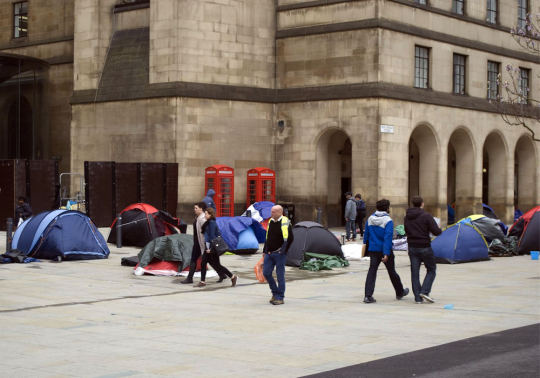
Nearly 300,000 people are homeless in England alone.
The NHS (National Health Service) without which many would not be alive, is being killed by the government, for the benefit of the private sector.
The current unelected government is trying to take away free prescriptions for people over 60, most of whom are already struggling/dying because of energy and food bills.
The energy companies are making $100s of BILLIONS in profits while their charges soar. 100,000s of people will become ill or die because of this.
Public transport is an overpriced fiasco.
Small businesses are dropping like flies while bloated corporations continue spreading their tentacles.
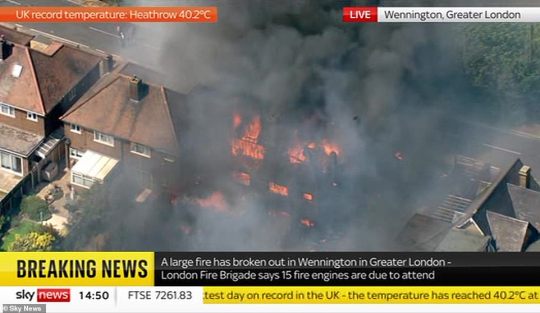
Climate change is causing increasing devastation, yet this latest sham of a government overturned the fracking ban before the queen was even cold(er), and they want to go back on other commitments.
Covid infection and death rates have been at all-time highs for months, but you'd think everything was fine.
The bulk of the mainstream media is biased, corrupt, and increasingly resembles the output of North Korea, from a capitalist-monarchist-fascist slant.
Anti-monarchist protestors are being arrested. Though that hasn't stopped the very vocal protests in some places.
Another unarmed black man, Chris Kaba, is shot to death by the Met police, while racists fall over each other to defend this.
Meanwhile the UK's racist anti-immigration juggernaut continues, but that's okay because the Home Office has just been handed from one god-awful brown fascist and racism enabling woman politician to another (Patel to Braverman). Being a woman and not white (version 2) however means that there's nothing to see here, if you like artificial, token progress that's like a flowery throw rug over a rotting corpse.
Anyone with long term illness/disability continues to be persecuted - and let's not forget that the Tory governments capitalist response to covid just added over 2 million and counting people suffering from long covid.
If the UK - England in particular - was an animal, it would be put down for suspected rabies.
227 notes
·
View notes
Text
Anonymous asked: I have always appreciated your thoughtful views on the defence of the British monarchy, and as a university historian it’s reassuring to see someone using history to make invalubale insights to a controversial institution. I wonder what are your own thoughts on the passing of Prince Philip and what his legacy might be? Was he a gaffe prone racist and a liability to the Queen?
I know you kindly got in touch and identified yourself when you felt I was ignoring your question. I’m glad we cleared that up via DM. The truth is as I said and I’m saying here is that I had to let some time pass before I felt I could reasonably answer this question. Simply because - as you know as someone who teaches history at university - distance is good to make a sober appraisal rather than knee jerk in the moment judgements.
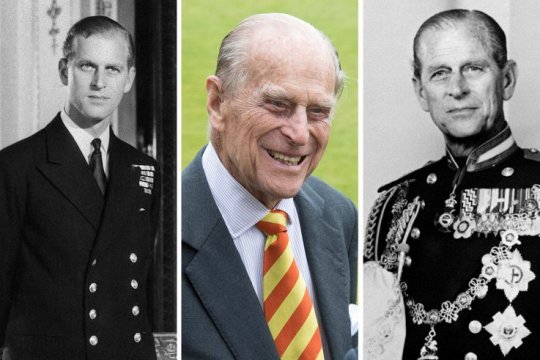
Contrary to what some might think I’m not really a fan girl when it comes to the royal family. I don’t religiously follow their every movement or utterance especially as I live in Paris and therefore I don’t really care about tabloid tittle tattle. I only get to hear of anything to do with the royal family when I speak to my parents or my great aunts and uncles for whom the subject is closer to their heart because of the services my family has rendered over past generations to the monarchy and the older (and dying) tight knit social circles they travel in.
Like Walter Bagehot, I’m more interested in the monarchy as an institution and its constitutional place within the historical, social, and political fabric of Britain and its continued delicate stabilising importance to that effect. It was Walter Bagehot, the great constitutional scholar and editor the Economist magazine, who said, “The mystic reverence, the religious allegiance, which are essential to a true monarchy, are imaginative sentiments that no legislature can manufacture in any people.” In his view, a politically-inactive monarchy served the best interests of the United Kingdom; by abstaining from direct rule, the monarch levitated above the political fray with dignity, and remained a respected personage to whom all subjects could look to as a guiding light.
Even as a staunch monarchist I freely confess that there has always been this odd nature of the relationship between hereditary monarchy and a society increasingly ambivalent about the institution. To paraphrase Bagehot again, there has been too much ‘daylight’ shone onto the ‘magic’ of the monarchy because we are obsessed with personalities as celebrities.
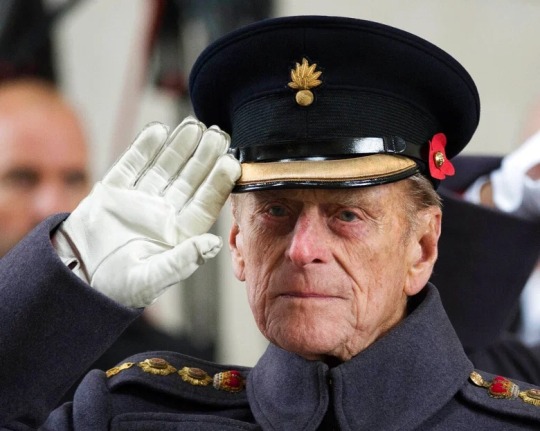
Having said that I did feel saddened by the passing of Prince Philip, the Duke of Edinburgh. After the Queen, he was my favourite royal. Anne, Princess Royal, would come next because she is very much like her father in temperament, humour, and character, so unlike her other brothers.
I have met the late Prince Philip when I was serving in the army in a few regimental meet-and-greet situations - which as you may know is pretty normal given that members of the royal family serve as honorary colonel-in-chiefs (patrons in effect) of all the British army regiments and corps.I also saw him at one or two social events such the annual charitable Royal Caledonian Ball (he’s an expert scottish reeler) and the Guards Polo Club where my older brothers played.
I’ll will freely confess that he was the one royal I could come close to identify with because his personal biography resonated with me a great deal.
Let’s be honest, the core Windsor family members, born to privilege, are conditioned and raised to be dull. Perhaps that’s a a tad harsh. I would prefer the term ‘anonymously self-effacing’, just another way of saying ‘for God’s sake don’t draw attention to yourself by saying or doing anything even mildly scandalous or political lest it invites public opprobrium and scrutiny’. The Queen magnificently succeeds in this but the others from Charles down just haven’t (with the exception of Princess Anne).
However, many people forget this obvious fact that it’s the incoming husbands and wives who marry into the Windsor family who are relied upon to bring colour and even liven things up a little. And long before Kate Middleton, Meghan Markle (very briefly), or Lady Diana Spencer, were the stars of ‘The Firm’- a phrase first coined by King George VI, Queen Elizabeth II's father who ruled from 1936 to 1952, who was thought to have wryly said, "British royals are 'not a family, we're a firm,” - it was Prince Philip who really livened things up and made the greater impact on the monarchy than any of them in the long term.
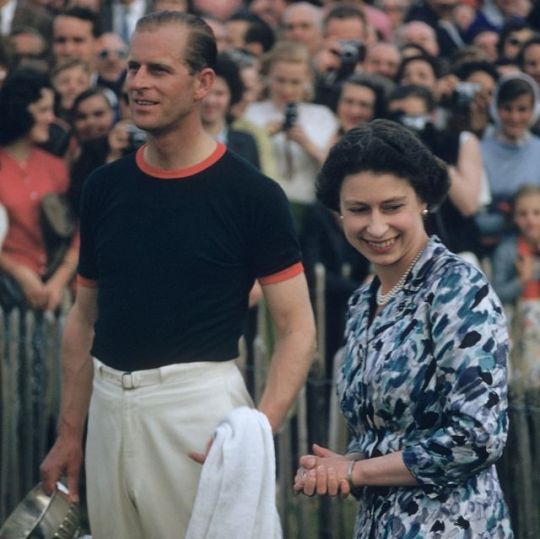
Prince Philip’s passing belied the truth of a far more complex individual: a destitute and penniless refugee Greek-Danish prince with a heart breaking backstory that could have been penned by any 19th Century novelist, and also eagle eyed reformer who tried to drag the royal family into the 20th century. At the core of the man - lost scion of a lost European royal dynasty, a courageous war veteran, and Queen’s consort - were values in which he attempted to transform and yet maintain much older inherited traditions and attitudes. Due to his great longevity, Philip’s life came to span a period of social change that is almost unprecedented, and almost no one in history viewed such a transformation from the front row.
Prince Philip would seem to represent in an acute form the best of the values of that era, which in many ways jar with today’s. He had fought with great courage in the war as a dashing young naval officer; he was regularly rude to foreigners, which was obviously a bonus to all Brits. He liked to ride and sail and shoot things. He was unsentimental almost to a comic degree, which felt reassuring at a time when a new-found emotional incontinence made many feel uncomfortable. Outrageous to some but endearing to others, he was the sort of man you’d want to go for a pint with, perhaps the ultimate compliment that an Englishman can pay to another Englishman. This has its own delicious irony as he wasn’t really an Englishman.
There are 4 takeways I would suggest in my appraisal of Prince Philip that stand out for me. So let me go through each one.
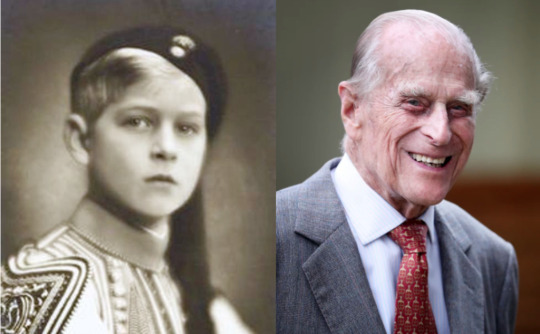
1. Prince Philip’s Internationalism
It may seem odd for me to say that Prince Philip wasn’t English but he wasn’t an Englishman in any real sense. He was a wretch of the world - stateless, homeless, and penniless. That the Prince of Nowhere became the British Monarchy’s figurehead was more than fitting for a great age of migration and transition in which the Royal Family survived and even flourished. That he was able to transform himself into the quintessential Englishman is testimony not just to his personal determination but also to the powerful cultural pull of Britishness.
He was born on a kitchen table in Corfu in June 1921. A year later in 1922, Philip, as the the great-great-grandson of Queen Victoria and nephew of Constantine I of Greece, was forced to flee with his family after the abdication of Constantine. He grew up outside Paris speaking French; ethnically he was mostly German although he considered himself Danish, his family originating from the Schleswig border region. He was in effect, despite his demeanour of Royal Navy officer briskness, a citizen of nowhere in an age of movement. From a very young age he was a stateless person, nationally homeless. Indeed, Philip was an outsider in a way that even Meghan Markle could never be; at his wedding in 1947, his three surviving sisters and two brothers-in-law were not permitted to attend because they were literally Britain’s enemies, having fought for the Germans. A third brother-in-law had even been in the SS, working directly for Himmler, but had been killed in the conflict.
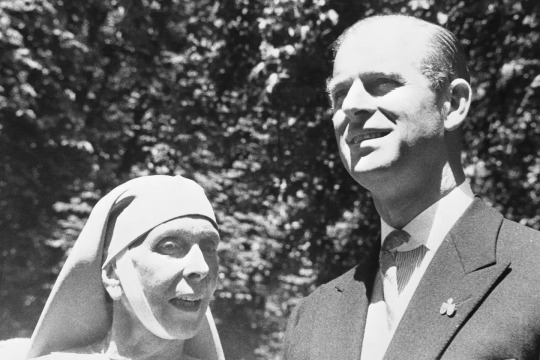
Even his religion was slightly exotic. He was Greek Orthodox until he converted to Anglicanism on marrying Elizabeth - what with his wife due to become supreme head of the Church and everything - but his ties with eastern Christianity remained. His great-aunts Princess Elisabeth of Hesse and by Rhine and Tsarina Alexandra are both martyrs of the Russian Orthodox Church, having been murdered by the Bolsheviks; Philip’s mother went on to become an Orthodox nun and a “Righteous Among the Nations” for saving a Jewish family during the Nazi occupation of Greece, spending much of her time in squalid poverty.
His parents were part of the largely German extended aristocracy who ruled almost all of Europe before it all came crashing down in 1918. When he died, aged 99, it marked a near-century in which all the great ideological struggles had been and gone; he had been born before the Soviet Union but outlived the Cold War, the War on Terror and - almost - Covid-19.
The world that Philip was born into was a far more violent and dangerous place than ours. In the year he was born, Irish rebels were still fighting Black and Tans; over the course of 12 months the Spanish and Japanese prime ministers were assassinated, there was a coup in Portugal and race riots in the United States. Germany was rocked by violence from the far-Left and far-Right, while in Italy a brutal new political movement, the Fascists, secured 30 seats in parliament, led by a trashy journalist called Benito Mussolini.
The worst violence, however, took place in Greece and Turkey. Following the defeat of the Ottoman Empire, what remained of Turkey was marked for permanent enfeeblement by the Allies. But much to everyone’s surprise the country’s force were roused by the brilliant officer Mustafa Kemal, who led the Turks to victory. Constantinople was lost to Christendom for good and thousands of years of Hellenic culture was put to the flames in Smyrna.
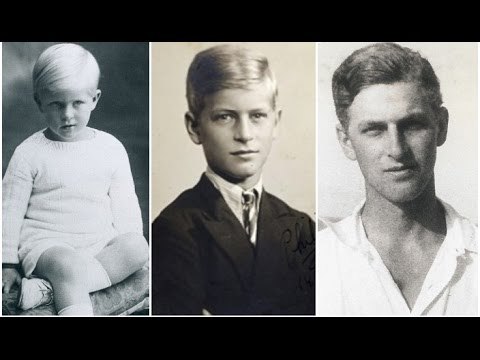
The Greek royal family, north German imports shipped in during the 19th century, bore much of the popular anger for this disaster. King Constantine fled to Italy, and his brother Andrew was arrested and only escaped execution through the intervention of his relative Britain’s George V. Andrew’s wife Alice, their four daughters and infant son Philip fled to France, completely impoverished but with the one possession that ensures that aristocrats are never truly poor: connections.
Philip had a traumatic childhood. He was forged by the turmoil of his first decade and then moulded by his schooling. His early years were spent wandering, as his place of birth ejected him, his family disintegrated and he moved from country to country, none of them ever his own. When he was just a year old, he and his family were scooped up by a British destroyer from his home on the Greek island of Corfu after his father had been condemned to death. They were deposited in Italy. One of Philip's first international journeys was spent crawling around on the floor of the train from an Italian port city, "the grubby child on the desolate train pulling out of the Brindisi night," as his older sister Sophia later described it.
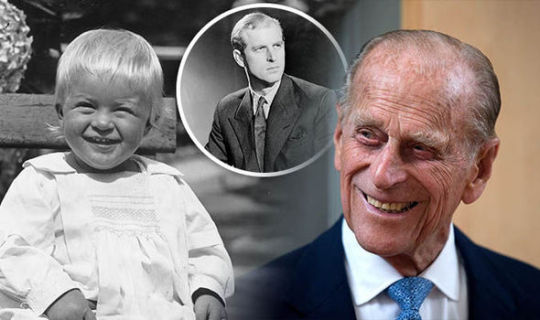
In Paris, he lived in a house borrowed from a relative; but it was not destined to become a home. In just one year, while he was at boarding school in Britain, the mental health of his mother, Princess Alice, deteriorated and she went into an asylum; his father, Prince Andrew, went off to Monte Carlo to live with his mistress. "I don't think anybody thinks I had a father," he once said. Andrew would die during the war. Philip went to Monte Carlo to pick up his father's possessions after the Germans had been driven from France; there was almost nothing left, just a couple of clothes brushes and some cuff-links.
Philip’s four sisters were all much older, and were soon all married to German aristocrats (the youngest would soon die in an aeroplane crash, along with her husband and children). His sisters became ever more embroiled in the German regime. In Scotland going to Gordonstoun boarding school, Philip went the opposite direction, becoming ever more British. Following the death of his sister Cecilie in a plane crash in 1937, the gulf widened. As the clouds of conflict gathered, the family simply disintegrated. With a flash of the flinty stoicism that many would later interpret, with no little justification, as self-reliance to the point of dispassion, the prince explained: “It’s simply what happened. The family broke up… I just had to get on with it. You do. One does.”
In the space of 10 years he had gone from a prince of Greece to a wandering, homeless, and virtually penniless boy with no-one to care for him. He got through it by making a joke of everything, and by being practical.
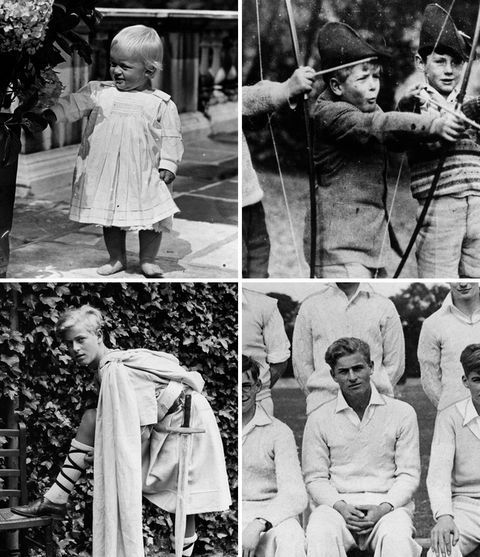
By the time he went to Gordonstoun, a private boarding school on the north coast of Scotland, Philip was tough, independent and able to fend for himself; he'd had to be. Gordonstoun would channel those traits into the school's distinct philosophy of community service, teamwork, responsibility and respect for the individual. And it sparked one of the great passions of Philip's life - his love of the sea. It was Gordonstoun that nurtured that love through the maturation of his character.
Philip adored the school as much as his son Charles would despise it. Not just because the stress it put on physical as well as mental excellence - he was a great sportsman. But because of its ethos, laid down by its founder Kurt Hahn, a Jewish exile from Nazi Germany.
Hahn first met Philip as a boy in Nazi Germany. Through a connection via one of his sister’s husbands, Philip, the poor, lonely boy was first sent off to a new school - in Nazi Germany. Which was as fun as can be imagined. Schloss Salem had been co-founded by stern educator called Kurt Hahn, a tough, discipline-obsessed conservative nationalist who saw civilisation in inexorable decline. But by this stage Hahn, persecuted for being Jewish in Nazi Germany, had fled to Britain, and Philip did not spend long at the school either, where pressure from the authorities was already making things difficult for the teachers. Philip laughed at the Nazis at first, because their salute was the same gesture the boys at his previous school had to make when they wanted to go to the toilet, but within a year he was back in England, a refugee once again.
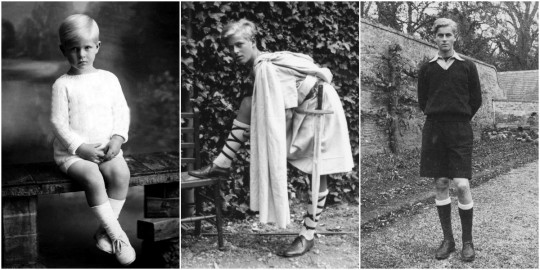
Philip happily attended Hahn’s new school, Gordonstoun, which the strict disciplinarian had set up in the Scottish Highlands. Inspired by Ancient Sparta, the boys (and then later girls) had to run around barefoot and endure cold showers, even in winter, the whole aim of which was to drive away the inevitable civilisational decay Hahn saw all around him. To 21st century ears it sounds like hell on earth, yet Philip enjoyed it, illustrating just what a totally alien world he came from.
That ethos became a significant, perhaps the significant, part of the way that Philip believed life should be lived. It shines through the speeches he gave later in his life. "The essence of freedom," he would say in Ghana in 1958, "is discipline and self-control." The comforts of the post-war era, he told the British Schools Exploring Society a year earlier, may be important "but it is much more important that the human spirit should not be stifled by easy living". And two years before that, he spoke to the boys of Ipswich School of the moral as well as material imperatives of life, with the "importance of the individual" as the "guiding principle of our society".
It was at Gordonstoun one of the great contradictions of Philip's fascinating life was born. The importance of the individual was what in Kurt Hahn's eyes differentiated Britain and liberal democracies from the kind of totalitarian dictatorship that he had fled. Philip put that centrality of the individual, and individual agency - the ability we have as humans to make our own moral and ethical decisions - at the heart of his philosophy.
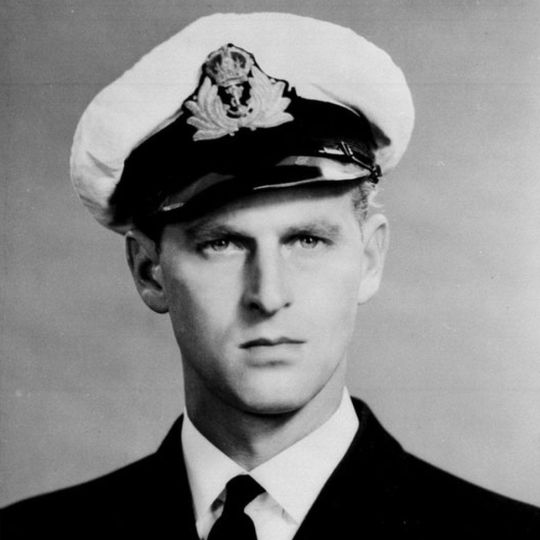
At Dartmouth Naval College in 1939, the two great passions of his life would collide. He had learned to sail at Gordonstoun; he would learn to lead at Dartmouth. And his driving desire to achieve, and to win, would shine through. Despite entering the college far later than most other cadets, he would graduate top of his class in 1940. In further training at Portsmouth, he gained the top grade in four out of five sections of the exam. He became one of the youngest first lieutenants in the Royal Navy.
The navy ran deep in his family. His maternal grandfather had been the First Sea Lord, the commander of the Royal Navy; his uncle, "Dickie" Mountbatten, had command of a destroyer while Philip was in training. In war, he showed not only bravery but guile. It was his natural milieu. "Prince Philip", wrote Gordonstoun headmaster Kurt Hahn admiringly, "will make his mark in any profession where he will have to prove himself in a trial of strength".
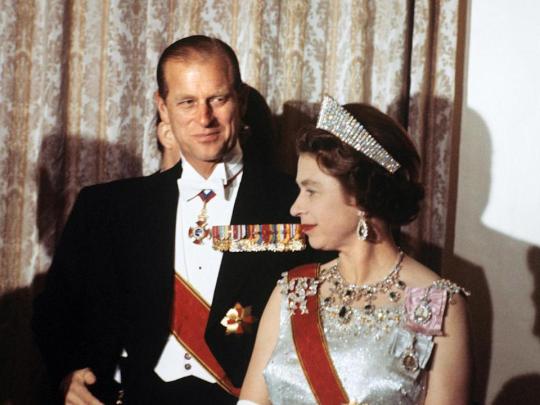
2. Prince Philip and the modernisation of the monarchy
In his own words, the process of defining what it meant to be a royal consort was one of “trial and error.” Speaking with BBC One’s Fiona Bruce in 2011, Philip explained, “There was no precedent. If I asked somebody, 'What do you expect me to do?' they all looked blank. They had no bloody idea, nobody had much idea.” So he forged for himself a role as a moderniser of the monarchy.
He could not have had much idea back in 1939. Back then in Dartmouth in 1939, as war became ever more certain, the navy was his destiny. He had fallen in love with the sea itself. "It is an extraordinary master or mistress," he would say later, "it has such extraordinary moods." But a rival to the sea would come.
When King George VI toured Dartmouth Naval College, accompanied by Philip's uncle, he brought with him his daughter, Princess Elizabeth. Philip was asked to look after her. He showed off to her, vaulting the nets of the tennis court in the grounds of the college. He was confident, outgoing, strikingly handsome, of royal blood if without a throne. She was beautiful, a little sheltered, a little serious, and very smitten by Philip.
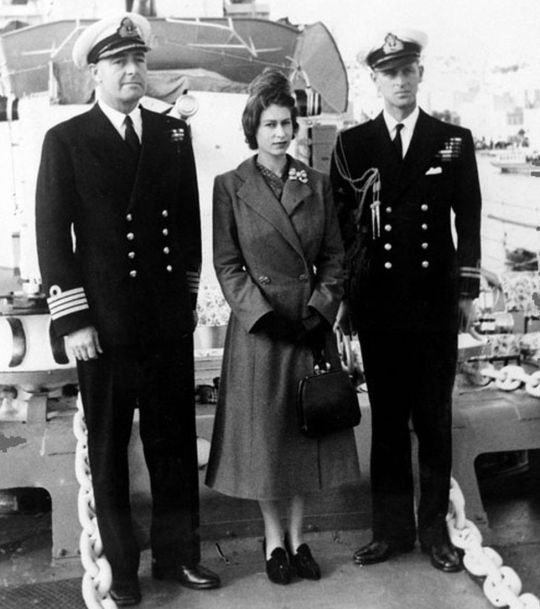
Did he know then that this was a collision of two great passions? That he could not have the sea and the beautiful young woman? For a time after their wedding in 1948, he did have both. As young newlyweds in Malta, he had what he so prized - command of a ship - and they had two idyllic years together. But the illness and then early death of King George VI brought it all to an end.
He knew what it meant, the moment he was told. Up in a lodge in Kenya, touring Africa, with Princess Elizabeth in place of the King, Philip was told first of the monarch's death in February 1952. He looked, said his equerry Mike Parker, "as if a ton of bricks had fallen on him". For some time he sat, slumped in a chair, a newspaper covering his head and chest. His princess had become the Queen. His world had changed irrevocably.
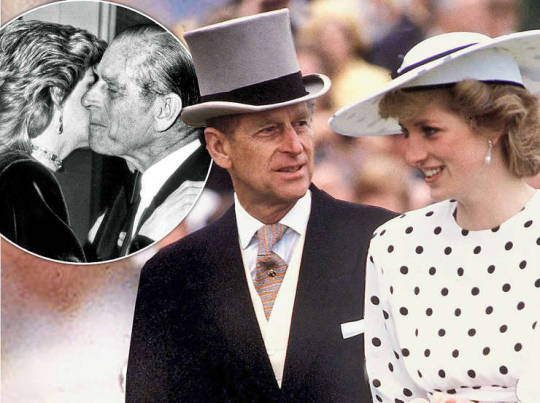
While the late Princess Diana was later to famously claim that there were “three people” in her marriage - herself, Prince Charles and Camilla - there were at least 55 million in Philip and Elizabeth’s. As Elizabeth dedicated her life to her people at Westminster Abbey at the Coronation on June 2, 1953, it sparked something of an existential crisis in Philip. Many people even after his death have never really understood this pivotal moment in Philip’s life. All his dreams of being a naval officer and a life at sea as well as being the primary provider and partner in his marriage were now sacrificed on the altar of duty and love.
With his career was now over, and he was now destined to become the spare part. Philip, very reasonably, asked that his future children and indeed his family be known by his name, Mountbatten. In effect he was asking to change the royal family’s name from the House of Windsor to the House of Mountbatten. But when Prime Minister Winston Churchill got wind of it as well as the more politically agile courtiers behind the Queen, a prolonged battle of wits ensued, and it was one Philip ultimately lost. It was only in 1957 that he accepted the title of “Prince.”
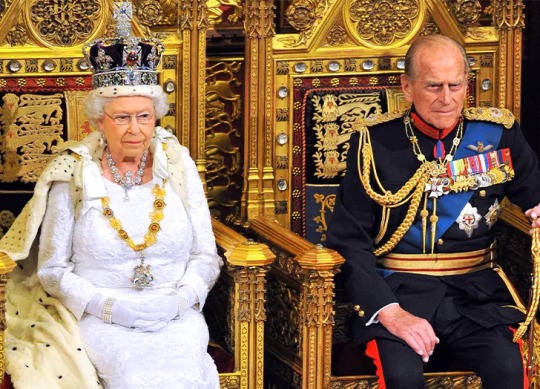
Even though he had almost lost everything dear to him and his role now undefined, he didn’t throw himself a pity party. He just got on with it. Philip tried to forge his own distinct role as second fiddle to the woman who had come to represent Great Britain. He designated himself the First Officer of the Good Ship Windsor. He set about dusting off some of the cobwebs off the throne and letting some daylight unto the workings of the monarchy by advocating reasonable amount of modernisation of the monarchy.
He had ideas about modernising the royal family that might be called “improving optics” today. But in his heart of hearts he didn’t want the monarchy to become a stuffy museum piece. He envisaged a less stuffy and more popular monarchy, relevant to the lives of ordinary people. Progress was always going to be incremental as he had sturdy opposition from the old guard who wanted to keep everything as it was, but nevertheless his stubborn energy resulted in significant changes.
When a commission chaired by Prince Philip proposed broadcasting the 1953 investiture ceremony that formally named Elizabeth II as queen on live television, Prime Minister Winston Churchill reacted with outright horror, declaring, “It would be unfitting that the whole ceremony should be presented as if it were a theatrical performance.” Though the queen had initially voiced similar concerns, she eventually came around to the idea, allowing the broadcast of all but one segment of the coronation. Ultimately, according to the BBC, more than 20 million people tuned in to the televised ceremony - a credit to the foresight of Philip.
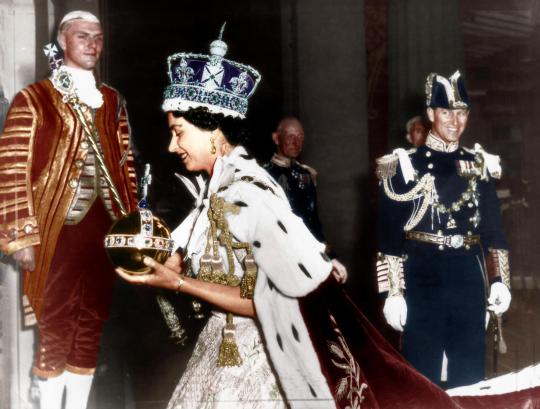
Elizabeth’s coronation marked a watershed moment for a monarchy that has, historically, been very hands off, old-fashioned and slightly invisible. Over the following years, the royals continued to embrace television as a way of connecting with the British people: In 1957, the queen delivered her annual Christmas address during a live broadcast. Again, this was Philip’s doing when he cajoled the Queen to televise her message live. He even helped her in how to use the teleprompter to get over her nerves and be herself on screen.
Four years later, in 1961, Philip became the first family member to sit for a television interview. It is hard for us to imagine now but back then it was huge. For many it was a significant step in modernising the monarchy.
Though not everything went to plan. Toward the end of the decade, the Windsors even invited cameras into their home. A 1969 BBC fly-on-the-wall documentary, instigated by Philip to show life behind the scenes, turned into an unmitigated disaster: “The Windsors” revealed the royals to be a fairly normal, if very rich, British upper-class family who liked barbecues, ice cream, watching television and bickering. The mystery of royalty took a hit below the waterline from their own torpedo, a self-inflicted wound from which they took a long time to recover. Shown once, the documentary was never aired again. But it had an irreversible effect, and not just by revealing the royals to be ordinary. By allowing the cameras in, Philip opened the lid to the prying eyes of the paparazzi who could legitimately argue that since the Royals themselves had sanctioned exposure, anything went. From then on, minor members of the House of Windsor were picked off by the press, like helpless tethered animals on a hunting safari.
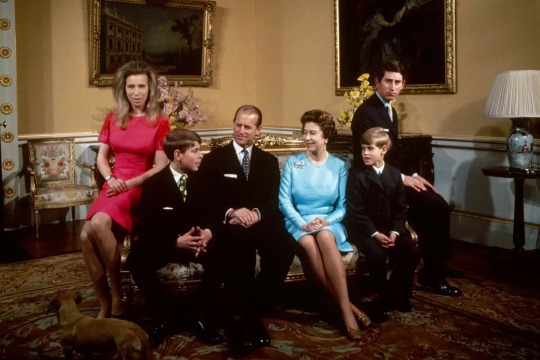
Prince Philip also took steps to reorganise and renovate the royal estates in Sandringham and Balmoral such as intercoms, modern dish washers, generally sought to make the royal household and the monarchy less stuffy, not to have so much formality everywhere.
Philip helped modernised the monarchy in other ways to acknowledge that the monarchy could be responsive to changes in society. It was Prince Philip - much to the chagrin of the haughty Princess Margaret and other stuffy old courtiers - who persuaded the Queen to host informal lunches and garden parties designed to engage a broader swath of the British public. Conversely, Prince Philip heartily encouraged the Queen (she was all for it apparently but was still finding her feet as a new monarch) to end the traditional practice of presenting debutantes from aristocratic backgrounds at court in 1952. For Philip and others it felt antiquated and out of touch with society. I know in speaking to my grandmother and others in her generation the decision was received with disbelief at how this foreign penniless upstart could come and stomp on the dreams of mothers left to clutch their pearls at the prospect there would be no shop window for their daughter to attract a suitable gentleman for marriage. One of my great aunts was over the moon happy that she never would have to go through what she saw as a very silly ceremony because she preferred her muddy wellies to high heels.
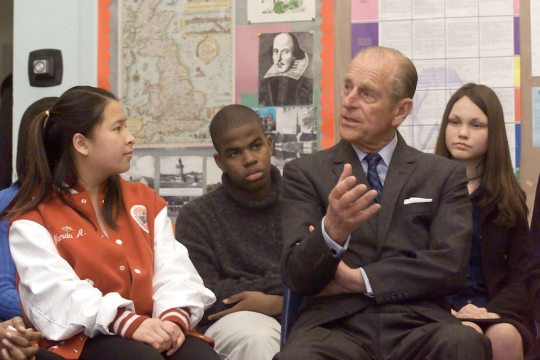
A former senior member of the royal household, who spent several years working as one of Prince Philip’s aides, and an old family friend, once told us around a family dinner table that the Duke of Edinburgh was undoubtedly given a sense of permanence by his marriage into the Royal Family that was missing from earlier years. But the royal aide would hastily add that Prince Philip, of course, would never see it that way.
Prince Philip’s attitude was to never brood on things or seek excuses. And he did indeed get on with the job in his own way - there should be no doubt that when it came to building and strengthening the Royal Family it was a partnership of equals with the Queen. Indeed contrary to Netflix’s hugely popular series ‘The Crown’ and its depiction of the royal marriage with Philip’s resentment at playing second fiddle, the prince recognised that his “first duty was to serve the Queen in the best way I could,” as he told ITV in 2011. Though this role was somewhat ill-suited to his dynamic, driven, and outspoken temperament, Philip performed it with utter devotion.
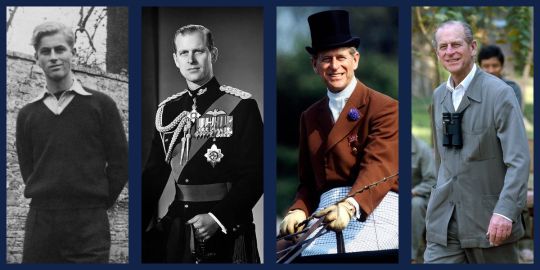
3. Prince Philip’s legacy
One could argue rightly that modernising the monarchy was his lasting legacy achievement. But he also tried to modernise a spent and exhausted Britain as it emerged from a ruinous war. When peace came, and with it eventual economic recovery, Philip would throw himself into the construction of a better Britain, urging the country to adopt scientific methods, embracing the ideas of industrial design, planning, education and training. A decade before Harold Wilson talked of the "white heat of the technological revolution", Philip was urging modernity on the nation in speeches and interviews. He was on top of his reading of the latest scientific breakthroughs and well read in break out innovations.
This interest in modernisation was only matched by his love for nature. As the country and the world became richer and consumed ever more, Philip warned of the impact on the environment, well before it was even vaguely fashionable. As president of the World Wildlife Fund (WWF) in the UK for more than 20 years from 1961, he was one of the first high-profile advocates of the cause of conservation and biological diversity at a time when it was considered the preserve of an eccentric few.
For a generation of school children in Britain and the Commonwealth though, his most lasting legacy and achievement will be the Duke of Edinburgh Awards (DofE). He set up the Duke of Edinburgh award, a scheme aimed at getting young people out into nature in search of adventure or be of service to their communities. It was a scheme that could match the legacy of Baden Powell’s scouts movement.
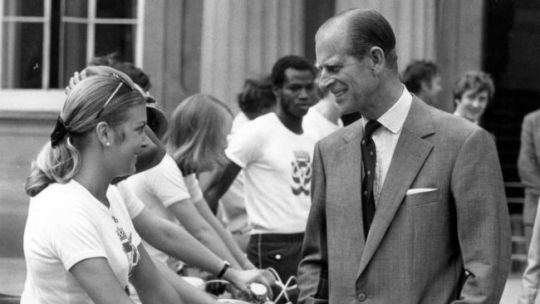
When Prince Philip first outlined his idea of a scheme to harness the values of his education at Gordonstoun by bringing character-building outdoor pursuits to the many rather than the fee-paying few, he received short shrift from the government of the day. The then minister of education, Sir David Eccles responded to the Duke’s proposal by saying: “I hear you’re trying to invent something like the Hitler Youth.” Undeterred he pushed on until it came to fruition.
I’m so glad that he did. I remember how proud I was for getting my DofE Awards while I was at boarding school. With the support of great mentors I managed to achieve my goals: collecting second-hand English books for a literacy programme for orphaned street children in Delhi, India with a close Indian school friend and her family; and completing a 350 mile hike following St. Olav’s Pilgrimmage Trail from Selånger, on the east coast of Sweden, and ending at Nidaros Cathedral in Trondheim, on the west coast of Norway.
It continues to be an enduring legacy. Since its launch in 1956, the Duke of Edinburgh awards have been bestowed upon some 2.5 million youngsters in Britain and some eight million worldwide. For a man who once referred to himself as a “Greek princeling of no consequence”, his pioneering tutelage of these two organisations (alongside some 778 other organisations of which he was either president or a patron) would be sufficient legacy for most.
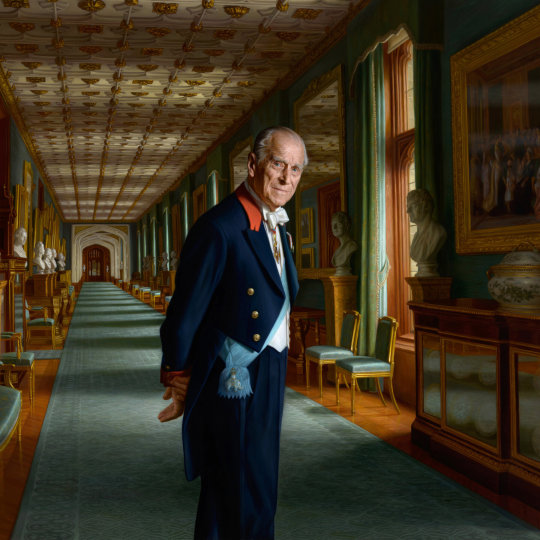
4. Prince Philip’s character
It may surprise some but what I liked most about Prince Philip was the very thing that helped him achieve so much and leave a lasting legacy: his character.
It is unhelpful to the caricature of Prince Philip as an unwavering but pugnacious consort whose chief talent was a dizzying facility in off-colour one-liners that he was widely read and probably the cleverest member of his family.
His private library at Windsor consists of 11,000 tomes, among them 200 volumes of poetry. He was a fan of Jung, TS Eliot, Shakespeare and the cookery writer Elizabeth David. As well as a lifelong fascination with science, technology and sport, he spoke fairly fluent French, painted and wrote a well received book on birds. It’s maddening to think how many underestimated his genuine intellect and how cultured he was behind the crusty exterior.
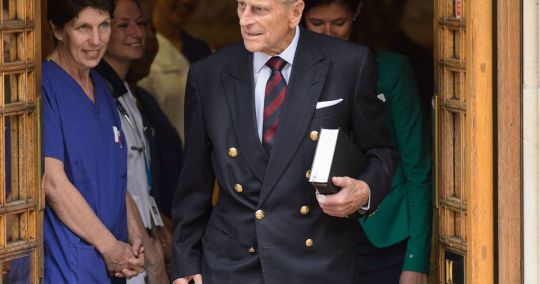
He didn’t have an entourage to fawn around him. He was the first to own a computer at Buckingham Palace. He answered his own phone and wrote and responded to his own correspondence. By force of character he fought the old guard courtiers at every turn to modernise the monarchy against their stubborn resistance.
Prince Philip was never given to self-analysis or reflection on the past. Various television interviewers tried without success to coerce him in to commenting on his legacy.But once when his guard was down he asked on the occasion of his 90th birthday what he was more proud of, he replied with characteristic bluntness: “I couldn’t care less. Who cares what I think about it, I mean it’s ridiculous.”
All of which neatly raises the profound aversion to fuss and the proclivity for tetchiness often expressed in withering put-downs that, for better or worse, will be the reflex memory for many of the Duke of Edinburgh. If character is a two edged sword so what of his gaffes?
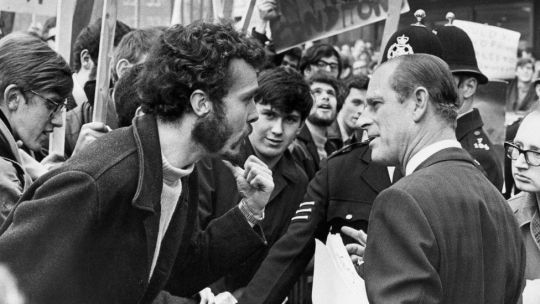
There is no doubt his cult status partly owed to his so-called legendary gaffes, of which there are enough to fill a book (indeed there is a book). But he was no racist. None of the Commonwealth people or foreign heads of state ever said this about him. Only leftist republicans with too much Twitter time on their hands screamed such a ridiculous accusation. They’re just overly sensitive snowflakes and being devoid of any humour they’re easily triggered.
There was the time that Philip accepted a gift from a local in Kenya, telling her she was a kind woman, and then adding: “You are a woman, aren’t you?” Or the occasion he remarked “You managed not to get eaten, then?” to a student trekking in Papua New Guinea. Then there was his World Wildlife Fund speech in 1986, when he said: “If it has got four legs and it is not a chair, if it has got two wings and it flies but is not an aeroplane, and if it swims and it is not a submarine, the Cantonese will eat it.” Well, he wasn’t wrong.
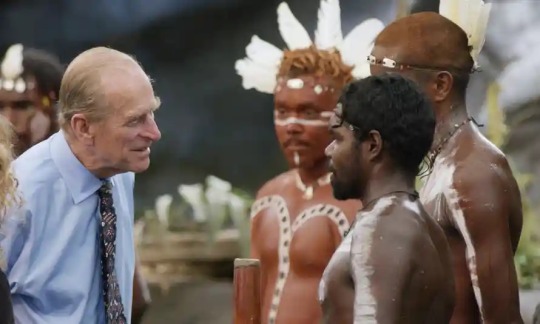
Philip quickly developed a reputation for what he once defined, to the General Dental Council, as “dentopedology – the science of opening your mouth and putting your foot in it”. Clearly he could laugh at himself as he often did as an ice breaker to put others at ease.
His remarking to the president of Nigeria, who was wearing national dress, “You look like you’re ready for bed”, or advising British students in China not to stay too long or they would end up with “slitty eyes”, is probably best written off as ill-judged humour. Telling a photographer to “just take the fucking picture” or declaring “this thing open, whatever it is”, were expressions of exasperation or weariness with which anyone might sympathise.
Above all, he was also capable of genuine if earthy wit, saying of his horse-loving daughter Princess Anne: “If it doesn’t fart or eat hay she isn’t interested.” Many people might have thought it but few dared say it. If Prince Philip’s famous gaffes provoked as much amusement as anger, it was precisely because they seem to give voice to the bewilderment and pent-up frustrations with which many people viewed the ever-changing modern world.
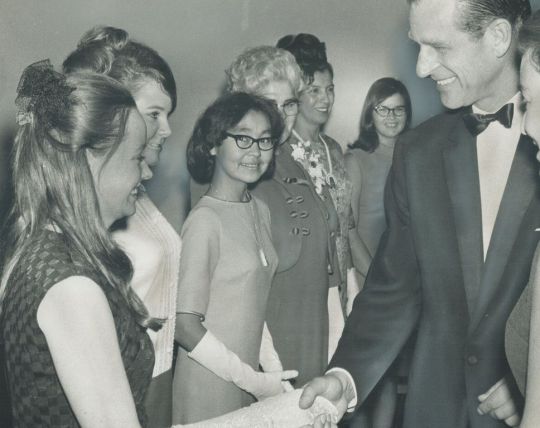
A former royal protection officer recounts how while on night duty guarding a visiting Queen and consort, he engaged in conversation with colleagues on a passing patrol. It was 2am and the officer had understood the royal couple to be staying elsewhere in the building until a window above his head was abruptly slammed open and an irate Prince Philip stuck his head out of the window to shout: “Would you fuck off!” Without another word, he then shut the window.
The Duke at least recognised from an early age that he was possessed of an abruptness that could all too easily cross the line from the refreshingly salty to crass effrontery.
One of his most perceptive biographers, Philip Eade, recounted how at the age of 21 the prince wrote a letter to a relation whose son had recently been killed in combat. He wrote: “I know you will never think much of me. I am rude and unmannerly and I say things out of turn which I realise afterwards must have hurt someone. Then I am filled with remorse and I try to put matters right.”
In the case of the royal protection officer, the Duke turned up in the room used by the police officers when off duty and said: “Terribly sorry about last night, wasn’t quite feeling myself.”
Aides have also ventured to explain away some of their employer’s more outlandish remarks - from asking Cayman islanders “You are descended from pirates aren’t you?” to enquiring of a female fashion writer if she was wearing mink knickers - as the price of his instinctive desire to prick the pomposity of his presence with a quip to put others at ease.
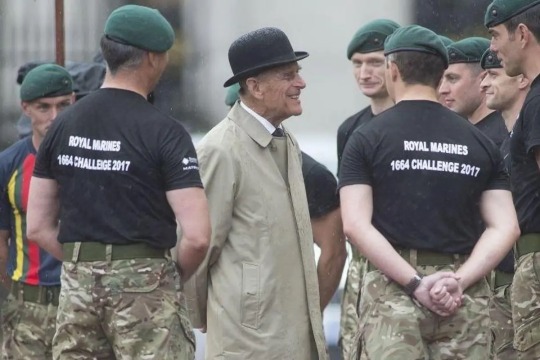
Indeed many people forget that his ‘gaffes’ were more typical of the clubbish humour of the British officer class – which of course would be less appreciated, sometimes even offensive, to other ears. It’s why he could relate so well to veterans who enjoyed his bonhomie company immensely.
But behind the irascibility, some have argued there also lay a darker nature, unpleasantly distilled in his flinty attitude to his eldest son. One anecdote tells of how, in the aftermath of the murder of the Duke’s uncle and surrogate father, Lord Mountbatten, Philip lectured his son, who was also extremely fond of his “honorary grandfather”, that he was not to succumb to self-pity. Charles left the room in tears and when his father was asked why he had spoken to his son with so little compassion, the Duke replied: “Because if there’s any crying to be done I want it to happen within this house, in front of his family, not in public. He must be toughened up, right now.”
But here I would say that Prince Philip’s intentions were almost always sincere and in no way cruel. He has always tried to protect his family - even from their own worst selves or from those outside the family ‘firm’ who may not have their best interest at heart.
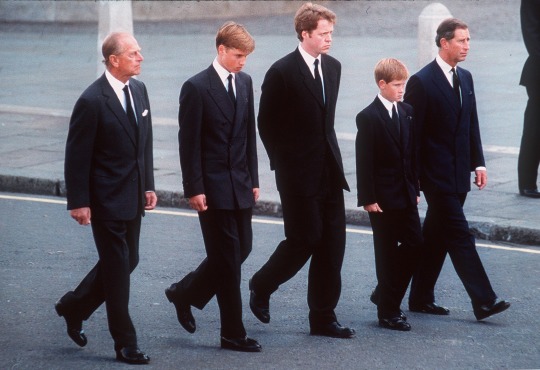
In 1937, a 16-year-old Prince Philip had walked behind his elder sister Cecile’s coffin after she was killed in a plane crash while heavily pregnant. The remains of newly-born infant found in the wreckage suggested the aircraft had perished as the pilot sought to make an emergency landing in fog as the mother entered childbirth. It was an excruciating taste of tragedy which would one day manifest itself in a very princely form of kindness that was deep down that defined Philip’s character.
When about 60 years later Prime Minister Tony Blair’s spin doctors in Downing Street tried to strong arm the Queen and the royal household over the the arrangements for the late Prince Diana’s funeral, it was Philip who stepped in front to protect his family. The Prime Minister and his media savvy spin doctors wanted the two young princes, William and Harry, to walk behind the coffin.
The infamous exchange was on the phone during a conference call between London and Balmoral, and the emotional Philip was reportedly backed by the Queen. The call was witnessed by Anji Hunter, who worked for Mr Blair. She said how surprised she was to hear Prince Philip’s emotion. ‘It’s about the boys,” he cried, “They’ve lost their mother”. Hunter thought to herself, “My God, there’s a bit of suffering going on up there”.’
Sky TV political commentator Adam Boulton (Anji Hunter’s husband) would write in his book Tony’s Ten Years: ‘The Queen relished the moment when Philip bellowed over the speakerphone from Balmoral, “Fuck off. We are talking about two boys who have just lost their mother”. Boulton goes on to say that Philip: ‘…was trying to remind everyone that human feelings were involved. No 10 were trying to help the Royals present things in the best way, but may have seemed insensitive.’
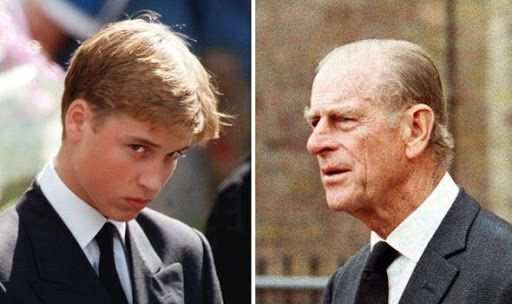
In the end the politicians almost didn’t get their way. Prince Philip stepped in to counsel his grandson, Prince William, after he had expressed a reluctance to follow his mother’s coffin after her death in Paris. Philip told the grieving child: “If you don’t walk, I think you’ll regret it later. If I walk, will you walk with me?”
It’s no wonder he was sought as a counsellor by other senior royals and especially close to his grandchildren, for whom he was a firm favourite. His relationship with Harry was said to have become strained, however, following the younger Prince’s decision to reject his royal inheritance for a life away from the public eye in America with his new American wife, Meghan Markle. For Prince Philip I am quite sure it went against all the elder Prince had lived his life by - self-sacrifice for the greater cause of royalty.
This is the key to Philip’s character and in understanding the man. The ingrained habits of a lifetime of duty and service in one form or another were never far away.
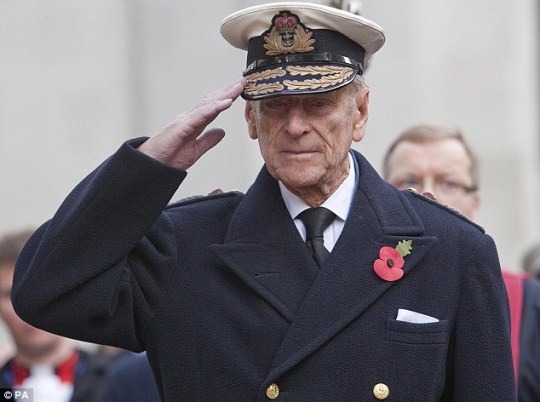
In conclusion then....
After more time passes I am sure historians will make a richer reassessment of Prince Philip’s life and legacy. Because Prince Philip was an extraordinary man who lived an extraordinary life; a life intimately connected with the sweeping changes of our turbulent 20th Century, a life of fascinating contrast and contradiction, of service and some degree of solitude. A complex, clever, eternally restless man that not even the suffocating protocols of royalty and tradition could bind him.
Although he fully accepted the limitations of public royal service, he did not see this as any reason for passive self-abnegation, but actively, if ironically, identified with his potentially undignified role. It is this bold and humorous embrace of fated restriction which many now find irksome: one is no longer supposed to mix public performance with private self-expression in quite this manner.
Yet such a mix is authentically Socratic: the proof that the doing of one’s duty can also be the way of self-fulfilment. The Duke’s sacrifice of career to romance and ceremonial office is all the more impressive for his not hiding some annoyance. The combination of his restless temperament and his deeply felt devotion to duty found fruitful expression; for instance, in the work of Saint George’s House Windsor - a centre and retreat that he created with Revd. Robin Woods - in exploring religious faith, philosophy, and contemporary issues.
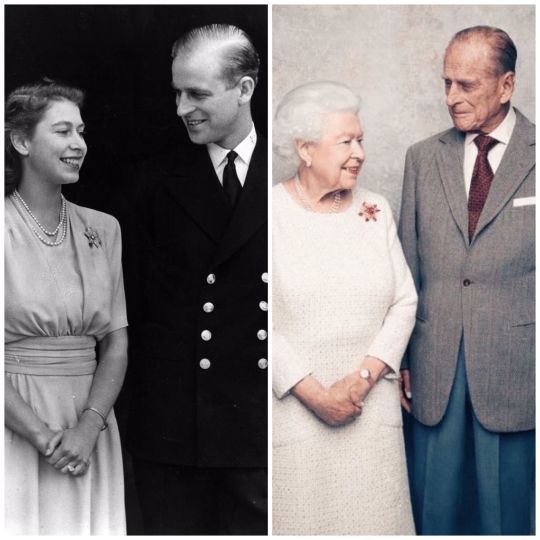
Above all he developed a way to be male that was both traditional and modern. He served one woman with chivalric devotion as his main task in life while fulfilling his public engagements in a bold and active spirit. He eventually embraced the opportunity to read and contemplate more. And yet, he remained loyal to the imperatives of his mentor Kurt Hahn in seeking to combine imagination with action and religious devotion with practical involvement.
Prince Philip took more pride in the roles he had accidentally inherited than in the personal gifts which he was never able fully to develop. He put companionship before self-realisation and acceptance of a sacred symbolic destiny before the mere influencing of events. In all these respects he implicitly rebuked our prevailing meritocracy which over-values officially accredited attainment, and our prevailing narcissism which valorises the assertion of discrete identities.
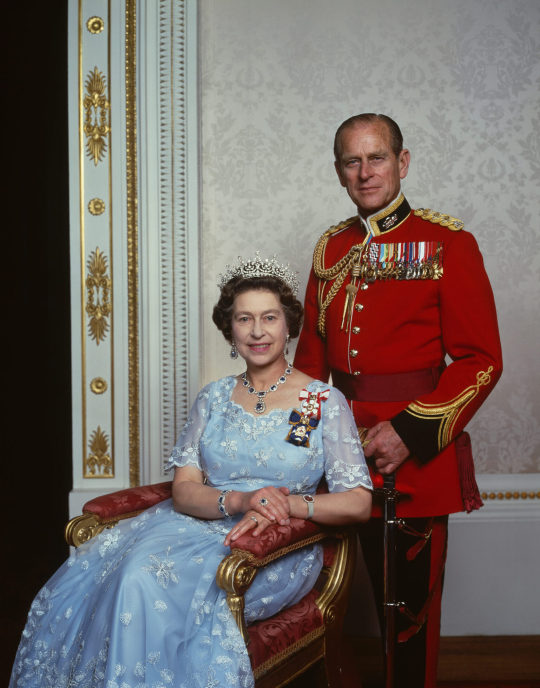
Prince Philip was Britain’s longest-serving consort. He was steadfast, duty driven, and a necessary adjunct to the continuity and stability of the Queen and the monarchy. Of all the institutions that have lost the faith of the British public in this period - the Church, Parliament, the media, the police - the Monarchy itself has surprisingly done better than most at surviving, curiously well-adapted to a period of societal change and moral anarchy. The House of Hanover and later Saxe-Coburg and Gotha (changed to Windsor), since their arrival in this country in 1714, have been noted above all for their ability to adapt. And just as they survived the Victorian age by transforming themselves into the bourgeoise, domestic ideal, so they have survived the new Elizabethan era (Harry-Meghan saga is just a passing blip like the Edward-Wallis Simpson saga of the 1930s).
There was once a time when the Royal’s German blood was a punchline for crude and xenophobic satirists. Now it is the royals who are deeply British while the country itself is increasingly cosmopolitan and globalised. British society has seen a greater demographic change than the preceding four or five thousand years combined, the second Elizabethan age has been characterised more than anything by a transformational movement of people. Prince Philip, the Greek-born, Danish-German persecuted and destitute wanderer who came to become one of the Greatest Britons of the past century, perhaps epitomised that era better than anyone else. And he got through it by making a joke of everything, and by being practical.
I hope I don’t exaggerate when I say that in our troubled times over identity, and our place and purpose in the world, we need to heed his selfless example more than ever.
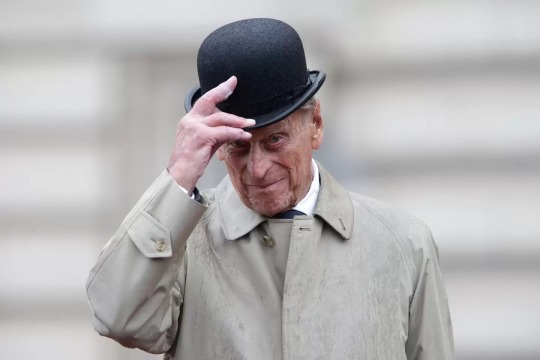
As Heraclitus wisely said, Ήθος ανθρώπω δαίμων (Character is destiny.)
RIP Prince Philip. You were my prince. God damn you, I miss you already.
Thanks for your question.
#question#ask#prince philip#duke of edinburgh#queen elizabeth II#the queen of spades#monarchy#britain#british#royalty#politics#history#culture#europe#crown#icon#great briton#society
284 notes
·
View notes
Text
Gods, I’m furious. (Shocker, I know - I’m usually so chill. /s)
Today’s update from Bullshit Island:
People are being arrested for anti-monarchist protests. One was for shouting at Andrew during the funeral procession, but two others were during accession announcements (eg the proclamation that Charles is now king.) One has since been ‘de-arrested’, a word I have literally never heard before in my entire 40+ years of life. This comes in the wake of the updated Policing Bill passed earlier this year which was already heavily criticised for its
A bank holiday has been declared for Monday. As there is only a week’s notice for this, this means:
Hospital appointments are being cancelled (bear in mind that wait lists for anything deemed routine have surged in the wake of Covid and loss of staff.)
There are reports that other people’s funerals are being cancelled in deference to, er, another funeral. This seems to be a decision made by individual providers, presumably based on staff requesting not to work on the bank holiday.
Every major supermarket is closing its stores on Monday.
A number of food banks are closing on Monday for the bank holiday as well, even though food bank usage has increased exponentially in the last few years. (Meanwhile, in 2010 the Queen applied for a poverty grant to pay for fuel bills for her palaces. The Crown Estate is worth something like £14B and the Queen herself had an estimated net worth of around £300M.)
Charles will not pay inheritance tax on what he gets from his mother, nor will any of the figures be released. (Second link is paywalled, but you get the gist.)
Royalists are twisting themselves into knots trying to justify the monarchy with all the usual arguments: they earn money through tourism, they do a lot of charity work, they serve the country, without a monarch we’d have the PM as President and nobody wants that.
Rebuttal: the palaces, the art, the crown jewels, etc will continue to exist without the royal family. People still visit Versailles and the Pyramids even though no king or pharaoh has been around for a long time now. They ‘serve the country’ exactly as much or as little as they wish to; not to mention that many of the places they ‘served’ did not want them there as subjugators in the first place. Whatever charity they contribute from their own wealth still raises the point of where they got all their wealth and privilege in the first place (hint, it was not through years of honest toil), and whether that wealth is in the best place and the best hands.
As for the ‘President’ angle, why do we need a ceremonial head of state in the first place? What does that provide that a government leader does not? Just someone to do all the hand-shaking photo ops the PM doesn’t have time for (in theory)? I don’t fancy the notion of ‘President Truss’ more than anyone else - she’s awful! Having something like the Royal Assent to provide checks and balances sounds good, in theory. But the people suggesting this also seem quick to point out that the Royal Assent thing hasn’t been invoked since something like 1708, because the monarchy is basically a formality. The Queen did meet with the Prime Minister quite regularly, but these meetings are under strict secrecy. The only things I’m aware she affected on government policy were things like getting herself exemption from disclosing her assets and complying with equalities legislation.
When Cameron and subsequent PMs committed to ploughing ahead with a disastrous no-deal Brexit even though their own reports and research (Yellowhammer etc) indicated it would harm the country? When Covid policy flip-flops and corruption left hundreds of thousands dead and friends of the government millions and billions in profit? When the son of a KGB agent was made a peer in the House of Lords? When the government and virtually all of the media are making a concerted effort to demonise trans people in order to splinter the LGBTQ+ movement? When the Prime Minster lied to the Queen’s very face? Crickets. Tumbleweed. At least, as far as we know.
So either we need the monarch to rein in the government, or the monarch is an empty figurehead without real power. Neither makes a good case for continuing it, frankly. If we need a check on the power of the government - and I would not dispute this - then why should such an important job default to someone who got there by an accident of birth? And if the monarch isn’t going to actually provide such a service and look out for the best interests of the country, then what bloody good are they and why should taxpayers fund their position when they are wildly, screamingly, privately wealthy already? Why can’t they pay for their own influence like every other billionaire? (Sarcasm, but not as much as I’d like.)
I’m not even going to get into the colonial BS because that’s been covered extensively by people who are much better informed and closer to the subject, but suffice to say, I stand behind the African, Indian, Indigenous, Irish, and other people expressing their concerns and dissatisfaction with the whole circus.
So no, I’m not mourning a very old, very privileged woman who died peacefully of natural causes. I’m definitely not mourning for ten days, and every new ridiculous bit of nonsense I see, every black profile picture, every obsequious tv or radio programme, every cap-doffing, head-bowing, knee-bending bit of performative pomp makes me angrier and even less well-inclined towards the whole lot of them.
No gods, no kings, no masters. Abolish the monarchy, and give their wealth to the people it came from, and the people of the country.
https://ko-fi.com/Post/Normal-Island-Mourns-By-Embracing-The-Cancel-Cultu-C0C2F0CVU
8 notes
·
View notes
Text
Thess vs Really Rough Days
Today was rough ... just for different reasons than I was afraid of. Today’s rough was arguably worse.
I mean, nothing changed today, looking at the capital of the UK through a bus window. I mean, apart from every bus stop advert I passed being that bloody woman’s face because apparently we have to have “Rest In Peace, You Colonising Trollop” (or, you know, Elizabeth Regina II, whatever) up just ... everywhere. But beyond that, the rules of ‘respect’ and ‘national mourning’ are weird. Apparently insofar as the BBC goes, we’re not allowed to sound particularly happy, so the programming has to be “appropriately low-key” and basically a bit sombre. And of course, the trade unions are cancelling all strikes out of “respect”. But nobody’s getting official time off work, even for the funeral itself, so apparently this whole thing is about, “Be sad and respectful but work your arses off while you’re doing it, okay?”
(Also, sorry, fuck the whole lot of this upcoming funeral. There are people who can’t even feed themselves, much less decently bury the people who died to Covid or are going to die of complications due to inadequate diet and heating - or, y’know, still Covid - this winter. I resent paying for the funeral of a woman whose family is worth billions. Don’t even talk to me about the fucking coronation.)
Anyway, thankfully no one was talking about it at work. I mean, I guess I’m not surprised: Scruffman considers himself Irish (I think he was born there but hasn’t lived there for, like, ever; Goblin gets irate when he calls himself Irish but he doesn’t do it often in my presence so I don’t give a fuck) and the Irish are ... handling this whole London Bridge Down thing the way I’d personally like to if it didn’t seem like it’d get me pilloried. Goblin never has anything nice to say about anyone so I doubt she’s a rabid monarchist. Temp really doesn’t care much about the news in general. And I didn’t really talk to anybody else today.
This was a relief because today? Was the worst pain day I have ever had. I mean it. Sincerely. Even now, sitting at a desk whose ergonomics are usually good for me, I am not handling it well and will go lie down as soon as I’ve done my update here, at least until the big painkillers kick in. At my shitty-ergonomics desk after the usual commute? Oh gods no. We’re talking constant spasms and two separate occasions where I had to lock myself in a stall in the bathroom no one uses (mostly because it’s gross; if you want to see gross, look at basically any UK hospital’s non-clinical areas) and just cry. Not just a tear here and there either; we’re talking sobbing as quietly as possible, trying to stop because I do not want anyone thinking I’m mourning the Colonising Trollop but literally cannot do so crying. I managed to pull myself together each time but holy hell, seriously. Also, cold water to the face can only repair so much damage, so I was trying not to look anyone in the eye. Again, tears after the death of a monarch to whom I was more or less indifferent and whose death is more of a fucking annoyance than anything else can look like something it’s not. Something I’d have to punch someone for suggesting it was. And I’m in no state to punch anyone right now. Anyway, I just tried to keep my head down and hoped no one’d notice.
Scruffman noticed. Thankfully, he did not mistake it for anything else - he’s perfectly aware of my political views. Also probably the fact that I was leaning on my cane harder than usual and shuffling because I literally could not pick my feet up off the floor when I walked helped. As did ... well, everything else. Anyway, point is that Scruffman noticed and was good about it in multiple ways:
Scruffman wrote me an email about it to read when I came back from break. This was good because I honestly dislike talking about my health in front of everybody. I think he’s figured that out, which is good.
The email asked if I was okay and told me to go home if I was in pain. Which I took him up on. If he’s noticing, it’s bad and as much as we’re understaffed, I couldn’t make anyone watch me struggle through two hours.
The email also said, in narrative tones of utmost apology, “I will talk to [Head Honcho] about your working from home. I am sorry this is taking so long”.
That third one’s particularly nice. I can more or less picture Scruffman going, “Look, she was crying with pain on Friday. She could barely walk. And she still came in and she still kept trying. If we don’t do something about this work from home thing soon, we will lose her the same way we lost Sid, and we cannot afford to lose her so sort it out.”
(And it would be ‘she’. I haven’t come out to the office yet. This is not a safe country to be out in.)
Of course, the ow wasn’t over yet, because I had to get home. I decided to stop at the big Tesco on the way home to make sure I have enough big painkillers for the entire weekend, some easy-to-cook food and some tasty treats. The bus ride there wasn’t too bad and was rewarded by a sale on ribeye steaks and the presence of miniature marshmallows (which will go in my hot chocolate tonight), among a couple of other necessities. No, the problem was coming out of the big Tesco and finding that while I was missing the rush hour, I was right on time for the schools letting out. The bus was rammed. Thankfully someone did give up their seat for me, which was necessary because it was standing room only and packed to beyond safe capacity. Guess people really did decide that our need to not be squished like a sardine ended with Covid (and that Covid is actually over). In the end, I got away with little more than someone stepping on my foot. OW.
So now I’m home an hour before I normally am, and I am going to go lie down until the painkillers kick in and I’m not a veritable pick n’ mix of pain.
7 notes
·
View notes
Text
Analysing “Let Me Be Your Vassal” (aka that one Dream & Wilbur conversation)
Wherein Cy decides going line by line through a scene from five months ago is a wonderful idea
Alright, let’s go! Recently I went back to watch Wilbur’s ‘Am I The Villain?’ video, since it was the first DSMP video I actually watched and I noticed something that made me actually go and find the vod from October 8th to specifically watch it: the details of Wilburs conversation with Dream where he asks for the TNT. Now, this did happen about five months ago now, but I think it would be good to look at this scene both with further character information we have now, and hopefully to clarify some things that newer fans might not be aware of! There’s also the fact that c!Wilbur is likely returning to the story soon.
I will be using quotes with timestamps to support my analysis, from this video. When [...] is used, it is to indicate an irrelevant tangent or repetition. Also, I feel it is important to note that this analysis is not meant to indicate moral judgement in any way: it is intended as a unbiased look at character actions and motivations.
First, let’s establish the exact situation here. At this point in time, we’re before the festival, and Dream has volunteered to help Pogtopia and has already given Technoblade supplies. He had also written a book to Tommy wherein he stated he didn’t support Schlatt due to his power-hungry ambitions, unlike Wilbur. After being seen as a villain in the last war, he didn’t want to become publicly involved especially through breaking a peace treaty, and instead offered to help from the shadows. He also gave Tommy his crossbow and some armour along with the book. While some may doubt his intentions as stated, I have reason to believe he’s being honest, as will be mentioned later. (Information taken directly from the book Tyrant, given to Tommy by Dream).
On Wilbur’s side, he’d just had his ‘then let’s be the bad guys’ moment after seeing Schlatt announce the festival, talking with Tommy on the way back to Pogtopia.
“We burn the place to the fucking ground!” - Wilbur 1:10:50
He starts making a plan:
“Okay, here’s the plan, right? Dream, Dream is on our side, Dream has TNT, Dream has everything, right? I say, we talk to Dream, and we ask him, very nicely, very kindly, ‘Dream, give us all the TNT you have’” - Wilbur 1:12:20
“The only reason Dream is working with us is because of the fact that we are the enemies of his enemies! That’s it! That’s all that joins... this!” - Wilbur, to Tommy 1:14:30
I feel a need to note here, that anything Wilbur says to Tommy about their allies shouldn’t be taken at face value: at this point his paranoia has begun clouding his view, as he also distrusts Tubbo, and later even doubts Tommy.
“Everyone who’s claiming to be on our side, they’re lying to us! Tubbo? he’s lying to you man! He would drop us at the second he realises that we’re not in the lead anymore!” - Wilbur, to Tommy 1:16:10
He has no proof to back up his claim about Dream, and personally I’m inclined to not believe his claim, seeing as Dream previously had no issue with L’Manberg after the peace treaty.
After some tunnel shenanigans happen, Wilbur asks Dream to talk privately: the conversation starts at 1:31:30
The conversation begins with Wilbur informing Dream about the festival, which he was previously unaware of. Dream laughs at the mention of the festival being a celebration of democracy, but whether this is because of his disdain for Schlatt or a personal dislike of democracy is unclear (question for another time: is c!Dream a monarchist? The SMP is technically ruled by a king after all, but they fulfil more of a neutral peacekeeping role in general. Theocracy???).
Wilbur then asks Dream if he thinks he and Tommy are the bad guys in the situation, and like Tommy, he disagrees. Wilbur proceeds to explain his reasoning, and then asks Dream what he thinks.
“I think that sometimes, a ruler is unfit, and that causes problems” - Dream 1:32:50
Wilbur then starts trying to persuade Dream to help him.
“Dream, I think you have vested interest though, I think that you would enjoy there to be conflict between Manberg and Pogtopia. And you know what, I’m here to facilitate that!” - Wilbur 1:33:00
Dream immediately denies this, and returns to talking about Schlatt.
“I don’t— Jschlatts a little bit more ambitious than you I’d say” - Dream 1:33:20
Note that at this point, Tommy meets up with Wilbur but is not in vc. Ignoring what Dream has just said, Wilbur makes his pitch:
“Dream, Dream, let me be your vassal! Dream, I understand you have a lot of TNT?” - Wilbur 1:33:25
Dream confirms that he has TNT.
“Dream, I want to be your vassal, I want to set this up, I want to rig the city” - Wilbur 1:33:40
This is the first time Wilbur mentions using the TNT to destroy L’Manberg. I also want to point out the use of the term ‘vassal’ here, as while the line itself is very well known, I’ve yet to see someone point out the relevant definition here is ‘a person or country in a subordinate position to another’ which you might notice, isn’t really the case here. Wilbur is asking Dream to supply him with something, there’s nothing subordinate about it. It could be that he’s implying that he’ll owe Dream for the favour, or it could be him seeing it as ‘helping’ Dream by destroying L’Manberg, as we’ve established his paranoia is leading him to see his allies in a negative light.
The two decide to meet at Pogtopia, and Tommy speaks up for the first time in the conversation.
“Dream, Dream don’t give it to him. It’s not right!”- Tommy
“Tommy it’s too... I have to.” - Dream 1:33:50 (overlapping)
‘I have to’ is an interesting line, and I’m assuming he’s referring to the promise he made to assist Pogtopia by supplying them. It does highlight how, at this point in time, Dream still seems hesitant about the plan.
Wilbur then starts talking to Dream but abruptly switches to talking to Tommy instead.
“Dream, I appreciate ... cause you see Tommy, the thing you’re not understanding is Dream only gave you that gear so that you could cause this conflict! You see, this is what it’s all about, Dream doesn’t want us to win! Dream just wants both Pogtopia and Manberg to be weak! [...] and Dream I’m not scolding you on this, it’s smart, you’re smart..” - Wilbur 1:34:00
To clarify my stance on this to people who are newer to the fandom, during Pogtopia, Dream and Tommy were actually on good, even friendly terms. It’s not until Dream joined Manberg that they became enemies again. Personally, I see this as Wilbur trying to make Tommy distrust Dream just as he did with Tubbo, although interpretations may differ. Wilbur complimenting Dream can be seen as trying to get on his good side and/or trying to persuade Dream that he wants to help Wilbur with the TNT.
“I’m here to help you, I’m here to weaken both of us!” - Wilbur 1:34:25
Dream then gets a chance to speak.
“I do want Pogtopia and Manberg to be nothing more, and I want L’Manberg to be... something” - Dream 1:34:40
Tommy asks why he wants L’Manberg back after he fought against them over it before.
“Schlatt is ambitious, and that’s a bad thing. He wants power, he wants land, he wants to expand. You having your own little server [...] that’s fine by me!” - Dream 1:34:55
Here Dream claims that due to Schlatt being power hungry he stands against him, but didn’t have an issue with L’Manberg just existing. I’m inclined to believe this claim, as it matches up with his actions in between the war and the elections. He also claims to have had a change of heart about L’Manberg, which again, seems to line up with his actions.
Wilbur then lets out a very evil sounding laugh, very melodramatic, I applaud cc!Wilbur for it. He then says something that I think is extremely important to this analysis, and part of why I made it in the first place.
“Dream, this has made me ambitious! If I’m taking power again I will be ambitious! Let me blow it up, let me destroy it all!” - Wilbur 1:35:15
Now considering what both Wilbur and Dream have been saying, there a very obvious conclusion you can come too here: Wilbur is claiming that he’d be just as bad as Schlatt if he was back in power, that there would be no getting the old L’Manberg back, that Dream would be better off helping his plan. Now obviously Wilbur isn’t evil— he’s paranoid, angry, and desperate— but this is what he claims to Dream, who’s knows he’s been willing to fight for L’Manberg before and has said he (Dream) wants to avoid fighting L’Manberg again. I know a lot of c!Wilbur fans get annoyed at people saying Wilbur manipulated Dream during Pogtopia, but you can’t deny that this moment specifically is manipulative: he’s specifically lying about his intentions to convince someone to help him. And it works! Dream arrives, and hands over the TNT to Wilbur.
Wilbur heads back to the entrance to Pogtopia, where Tommy holds him at bowpoint before Dream steps in, handing Wilbur a shield. Tommy talks about how they can rebuild L’Manberg rather than destroying it, but Wilbur laughs at it. Dream turns to leave.
“Dream, I will do you proud” - Wilbur 1:36:55
Dream offers to help him if he needs it, and Wilbur warns him about the festival. Dream leaves the game, marking the end of the conversation at 1:37:41.
When heading back into Pogtopia, Wilbur talks to chat about Dream being a ‘good guy’ but also repeating what he said before about Dream just wanting both sides to be weak.
Now that the main analysis is done, I did want to mention a few things that didn’t really fit within the main body for whatever reason: not enough evidence, may be biased etc. For one thing, I definitely noticed a shift in how Wilbur spoke to Dream, from initially just asking him for TNT to almost acting like the TNT was Dream’s idea. This could tie into the manipulation I noted, or it could just be a result of his paranoia causing him to misinterpret what Dream really wants. Or both! As I mentioned before, Wilbur’s narration can’t really be trusted because of this, but what we can do is compare actions and words: if what a person says their motives are lines up with how they act, then they’re probably being honest. There’s also the matter of context— Dream claiming to Eret that he’s always wanted everything to be Dream SMP territory when dethroning them doesn’t make much sense if you compare it to how he acted about L’Manberg after the war, at least until you realise he’s talking to the king of the Dream SMP and trying to play into what he thinks she wants— he even emphasise that them being able to take over after the war between Manberg and Pogtopia is only a possibility.
Anyway, this took a while but was fun to write, and hopefully even if you don’t agree with my personal interpretation of these events, looking at the quotes will hopefully be helpful for coming to your own conclusions! :D
312 notes
·
View notes